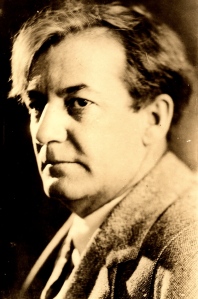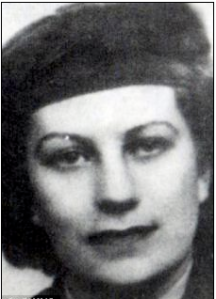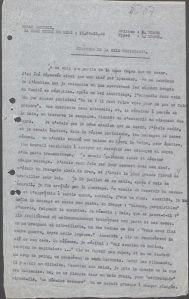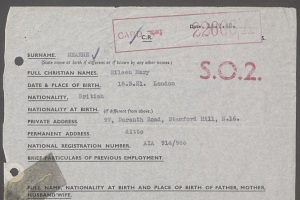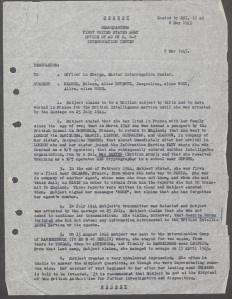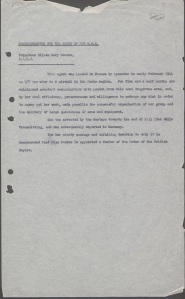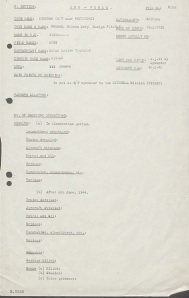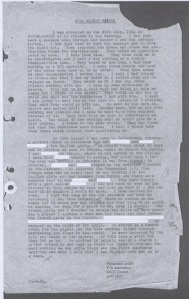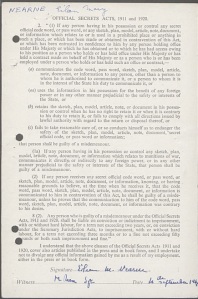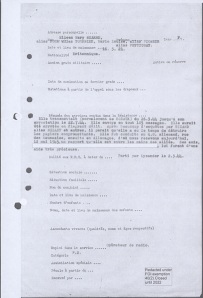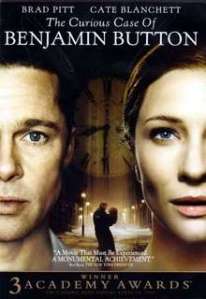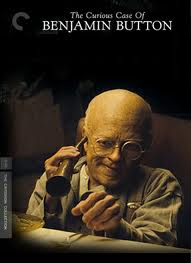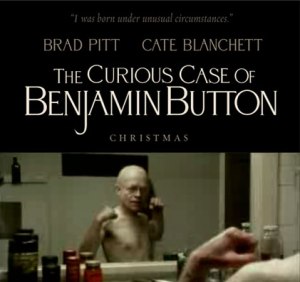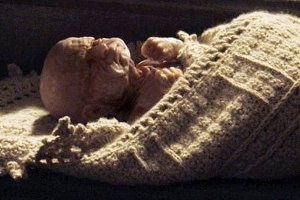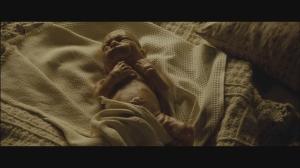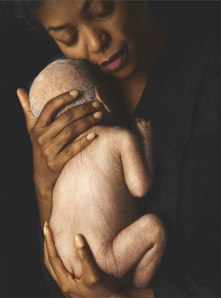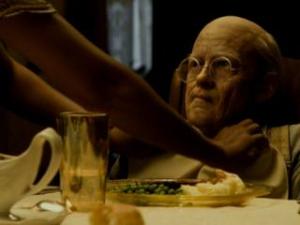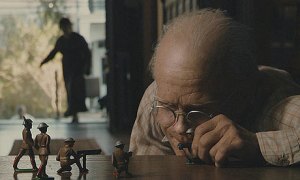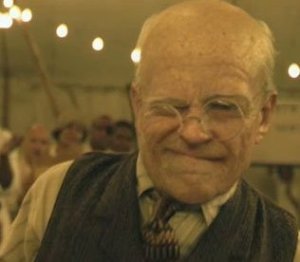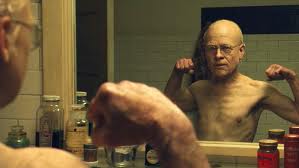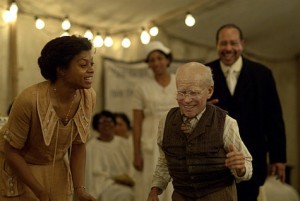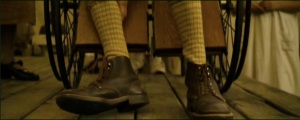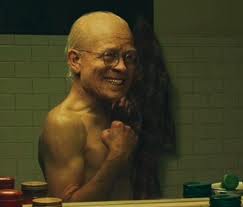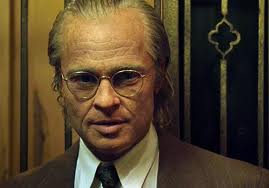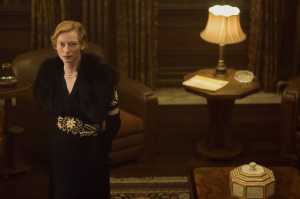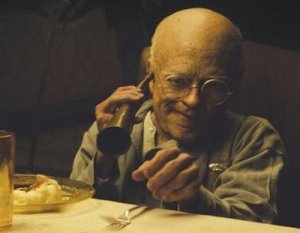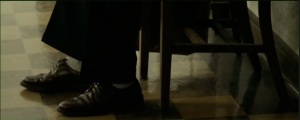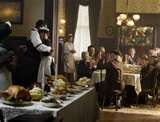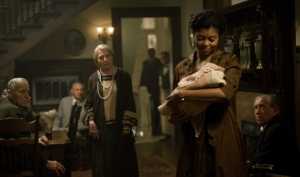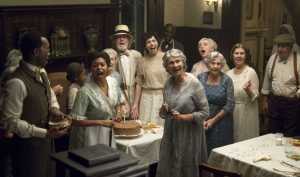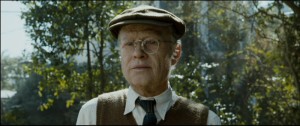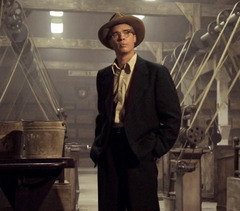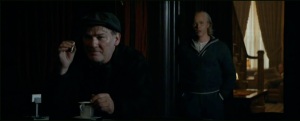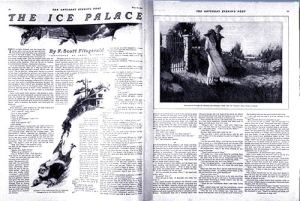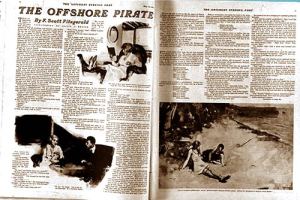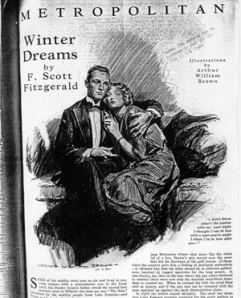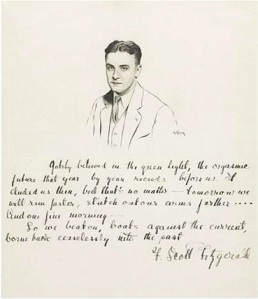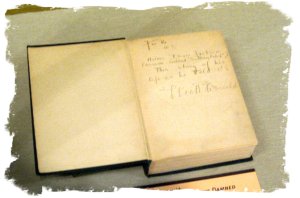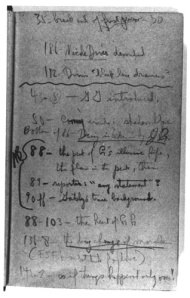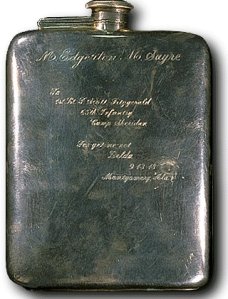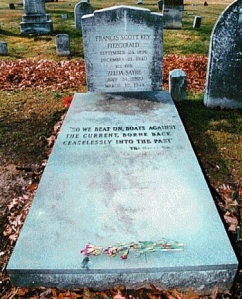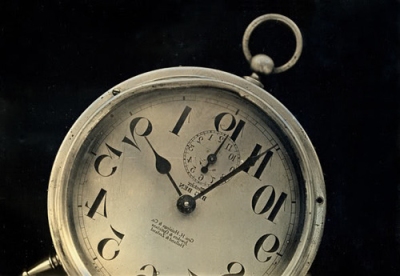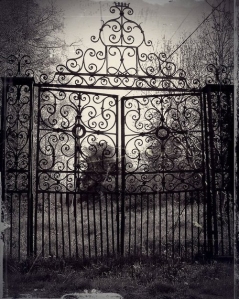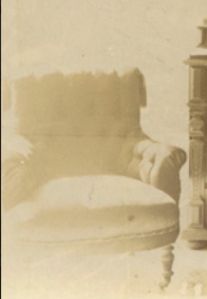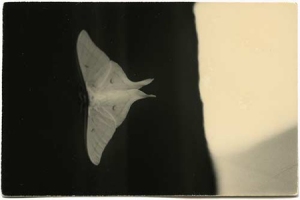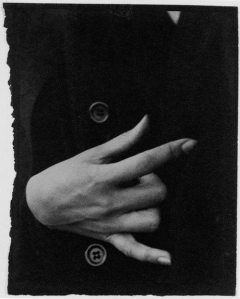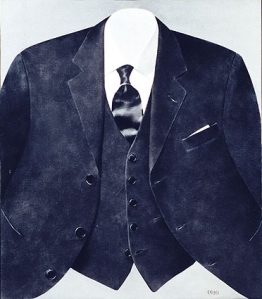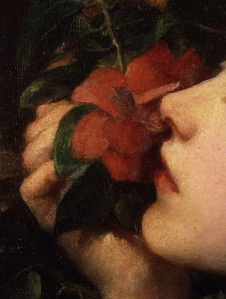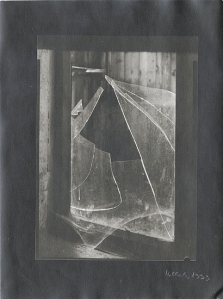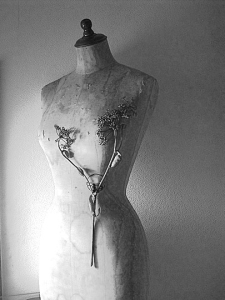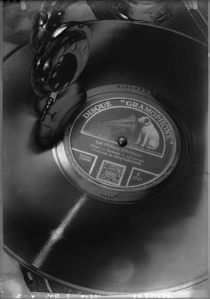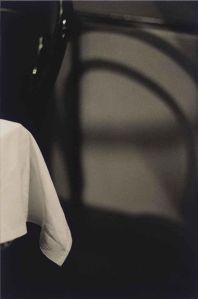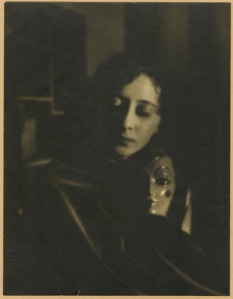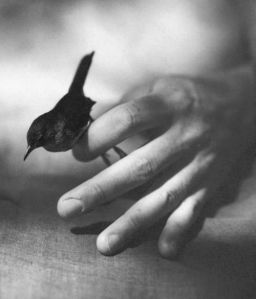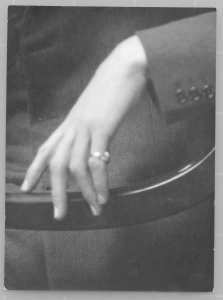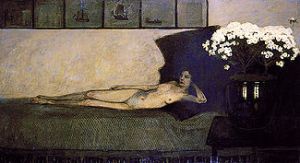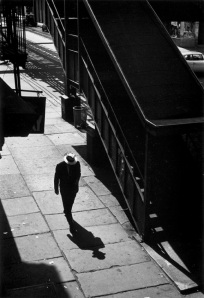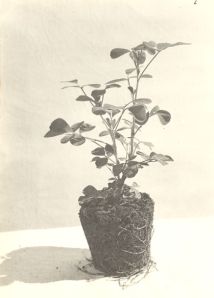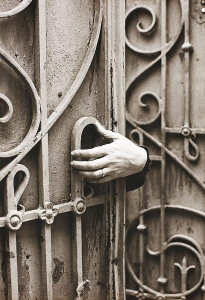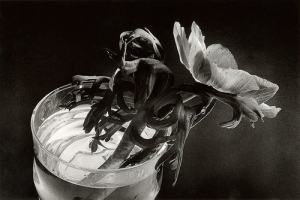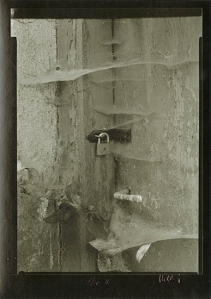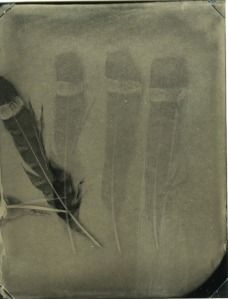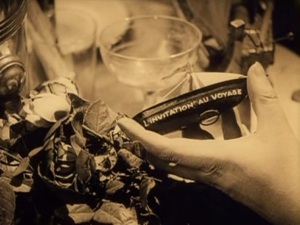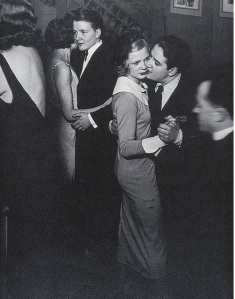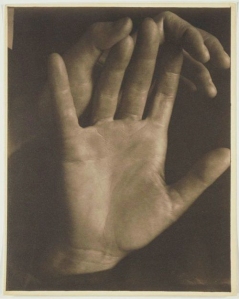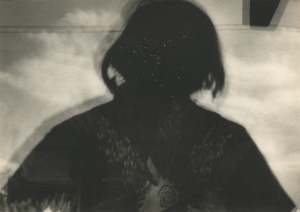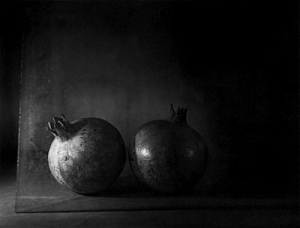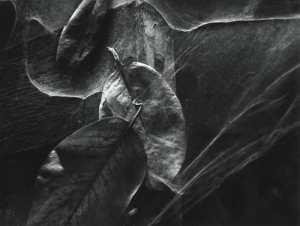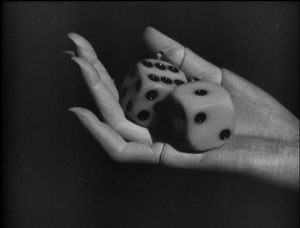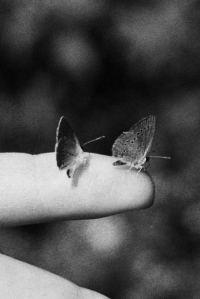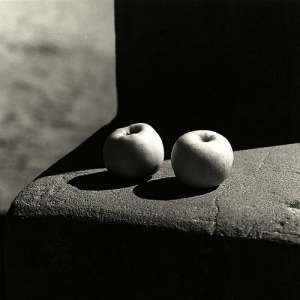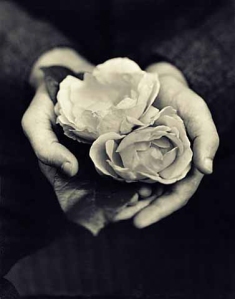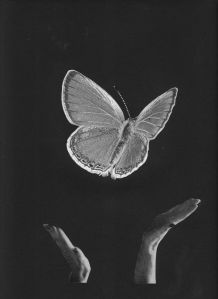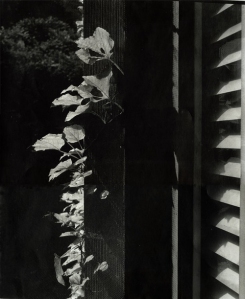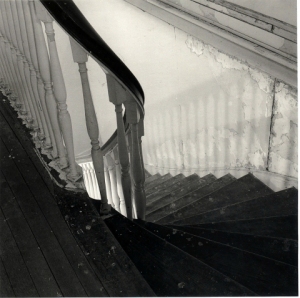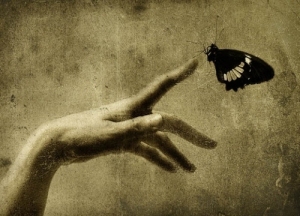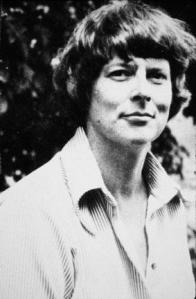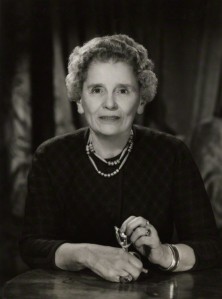
Rebecca West (December 21 1892 – March 15 1983)
My Uncle Arthur had red hair that lay close to his head in flat, circular curls, and a pointed red beard, and his blue-green eyes were at once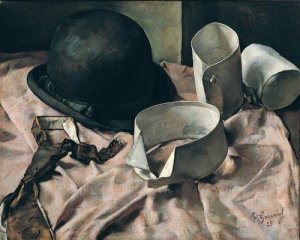 penetrating and bemused. He was the object of mingled derision and respect in our family. He was a civil servant who had early attracted attention by his brilliance; but the chief of his department, like so many English civil servants, was an author in his spare time, and when he published a history of European literature, my uncle reviewed it in the leading weekly of the day, pointing out that large as was the number of works in the less familiar languages that his chief supposed to be written in prose, though in fact they were written in verse, it was not so large as the number of such works that he supposed to be written in verse, though in fact they were written in prose. He wrote without malice, simply thinking his chief would be glad to know. My uncle never connected this review with his subsequent failure to gain a promotion that had seemed certain, or to have the day as snug as civil servants usually had it in the nineteenth century. But in the course of time his chief died, and my uncle rose to be an important official. However, he did a Cabinet Minister much the same service he had rendered his chief, and he never received the title that normally went with his post.
penetrating and bemused. He was the object of mingled derision and respect in our family. He was a civil servant who had early attracted attention by his brilliance; but the chief of his department, like so many English civil servants, was an author in his spare time, and when he published a history of European literature, my uncle reviewed it in the leading weekly of the day, pointing out that large as was the number of works in the less familiar languages that his chief supposed to be written in prose, though in fact they were written in verse, it was not so large as the number of such works that he supposed to be written in verse, though in fact they were written in prose. He wrote without malice, simply thinking his chief would be glad to know. My uncle never connected this review with his subsequent failure to gain a promotion that had seemed certain, or to have the day as snug as civil servants usually had it in the nineteenth century. But in the course of time his chief died, and my uncle rose to be an important official. However, he did a Cabinet Minister much the same service he had rendered his chief, and he never received the title that normally went with his post.
So he seesawed through life, and I liked his company very much when he was an old man and I was a young girl, for it was full of surprises. 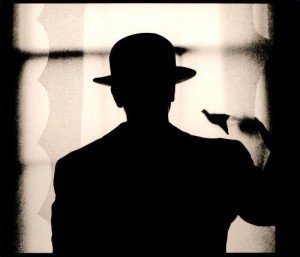 When I asked him a question, I never knew if his answer would show that he knew far less than I did or far more; and though he was really quite old, for he was my father’s elder by many years, he often made discoveries such as a schoolchild might make, and shared them with an enthusiasm as little adult. One day he gave me no peace till I had come with him to see the brightest field of buttercups he had ever found near London; it lay, solid gold, beside the great Jacobean mansion Ham House, by the river Thames. After we had admired it he took me to nearby Petersham Church, to see another treasure, the tomb of Captain Vancouver, who gave his name to the island; my uncle liked this tomb because he had spent some years of his boyhood in Canada and had been to Vancouver Island when it was hardly inhabited. Then we had tea in an inn garden and it happened that the girl who waited on us was called away by the landlord as she set the china on the table. His voice came from the kitchen: “Parthenope! Parthenope!” My uncle started, for no very good reason that I could see. There had been a time when many ships in the British Navy were called after characters in Greek history and mythology, male and female, and therefore many sailors’ daughters had been given the names of nymphs and goddesses and Homeric princesses and heroines of Greek tragedy. The only strange thing was that it was a long time since British ships had been christened so poetically, and most of the women who had acquired these classical names by this secondary interest were by now old or middle-aged, while our little waitress was very young. She had, as she told us when she came back, been called after a grandmother. But my uncle was plainly shaken by hearing those four syllables suddenly borne on the afternoon air. His thin hand
When I asked him a question, I never knew if his answer would show that he knew far less than I did or far more; and though he was really quite old, for he was my father’s elder by many years, he often made discoveries such as a schoolchild might make, and shared them with an enthusiasm as little adult. One day he gave me no peace till I had come with him to see the brightest field of buttercups he had ever found near London; it lay, solid gold, beside the great Jacobean mansion Ham House, by the river Thames. After we had admired it he took me to nearby Petersham Church, to see another treasure, the tomb of Captain Vancouver, who gave his name to the island; my uncle liked this tomb because he had spent some years of his boyhood in Canada and had been to Vancouver Island when it was hardly inhabited. Then we had tea in an inn garden and it happened that the girl who waited on us was called away by the landlord as she set the china on the table. His voice came from the kitchen: “Parthenope! Parthenope!” My uncle started, for no very good reason that I could see. There had been a time when many ships in the British Navy were called after characters in Greek history and mythology, male and female, and therefore many sailors’ daughters had been given the names of nymphs and goddesses and Homeric princesses and heroines of Greek tragedy. The only strange thing was that it was a long time since British ships had been christened so poetically, and most of the women who had acquired these classical names by this secondary interest were by now old or middle-aged, while our little waitress was very young. She had, as she told us when she came back, been called after a grandmother. But my uncle was plainly shaken by hearing those four syllables suddenly borne on the afternoon air. His thin hand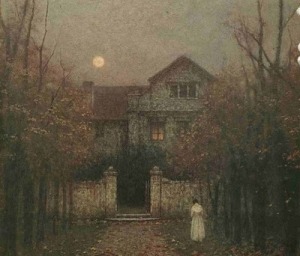 plucked at the edge of the tablecloth, he cast down his eyes, his head began to nod and shake. He asked me if he had ever told me the story of the Admiral and his seven daughters, in a tone that suggested that he knew he had not and was still trying to make up his mind whether he wanted to tell it now. Indeed, he told me very little that day though I was to hear the whole of it before he died.
plucked at the edge of the tablecloth, he cast down his eyes, his head began to nod and shake. He asked me if he had ever told me the story of the Admiral and his seven daughters, in a tone that suggested that he knew he had not and was still trying to make up his mind whether he wanted to tell it now. Indeed, he told me very little that day though I was to hear the whole of it before he died.
The story began at the house of my grandmother’s sister, Alice Darrell, and it could hardly have happened anywhere else. When her husband, an officer in the Indian Army, died of fever, her father-in-law had given her a house that he had recently and reluctantly inherited and could not sell because it was part of an entailed estate. He apologized for the gift, pleading justly that he could not afford to buy her another, and she accepted it bravely. But the house lay in a district that would strain anybody’s bravery. To reach it, one travelled about eight miles out of London along the main Hammersmith Road, the dullest of highways, and then turned left and found something worse. For some forgotten reason, there had sprung up at this point a Hogarthian slum, as bad as anything in the East End, which turned into a brawling hell every Saturday night. Beyond this web of filthy hovels lay flatlands covered by orchards and farmlands and market gardens, among which there had been set down three or four large houses. There was nothing to recommend the site. The Thames was 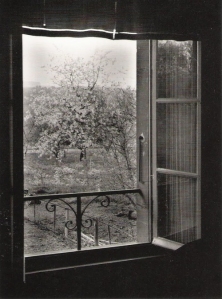 not far distant, and it was comprehensible enough that along its bank there had been built a line of fine houses, But at Alice Darrell’s there was no view of the river, though it lay near enough to shroud the region in mist during the winter months. It was true that the gardens had an alluvial fertility, but even they did not give the pleasure they should have done, for the slum dwellers carried out periodical raids on the strawberry beds and raspberry canes and orchards. These stranded houses had been built in Regency times and were beautiful, though disconcerting, because there was no reason why they should be there, and they were so oddly placed in relation to each other. They all opened off the same narrow road, and Aunt Alice’s house, Currivel Lodge, which was the smallest of them, lay at the end of a drive, and there faced sideways, so that its upper windows looked straight down on the garden of the much bigger house beside it, as that had been built nearer the road. This meant that my grandaunt could not sit on the pretty balcony outside her bedroom window without seeming to spy on her neighbours, so she never used it. But when my Uncle Arthur went to stay with her as a little boy, which was about a hundred years ago, nothing delighted him more than to shut himself in his bedroom and kneel on his window and do what his Aunt Alice could not bear to be suspected of doing.
not far distant, and it was comprehensible enough that along its bank there had been built a line of fine houses, But at Alice Darrell’s there was no view of the river, though it lay near enough to shroud the region in mist during the winter months. It was true that the gardens had an alluvial fertility, but even they did not give the pleasure they should have done, for the slum dwellers carried out periodical raids on the strawberry beds and raspberry canes and orchards. These stranded houses had been built in Regency times and were beautiful, though disconcerting, because there was no reason why they should be there, and they were so oddly placed in relation to each other. They all opened off the same narrow road, and Aunt Alice’s house, Currivel Lodge, which was the smallest of them, lay at the end of a drive, and there faced sideways, so that its upper windows looked straight down on the garden of the much bigger house beside it, as that had been built nearer the road. This meant that my grandaunt could not sit on the pretty balcony outside her bedroom window without seeming to spy on her neighbours, so she never used it. But when my Uncle Arthur went to stay with her as a little boy, which was about a hundred years ago, nothing delighted him more than to shut himself in his bedroom and kneel on his window and do what his Aunt Alice could not bear to be suspected of doing.
Currivel Lodge should have been a dreary place for the child. There was nowhere to walk and nowhere to ride. There was no village where one could watch the blacksmith at his forge and the carpenter at his bench. In those days, nobody rowed on the Thames anywhere but at Oxford, unless they were watermen earning their living. There was little visiting, for it took a good hour to an hour and a half to drive to London, and my needy grandaunt’s horses were old crocks. Her children were all older than little Arthur. But he enjoyed his visit simply because of the hours he spent on that window seat. I know the setting of the scene on which he looked, since I often stayed in that house many years later; for of course my grandaunt’s family never left it. When the entail came to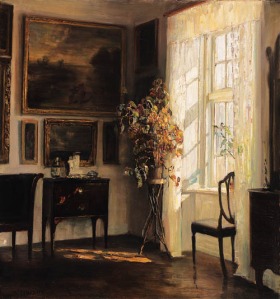 an end and the property could have been sold, there were the Zulu Wars, and South African War, the First World War, and all meant that the occupants were too busy or too troubled to move; and they were still living there when the house was swept away in a town-planning scheme during the twenties. What Arthur in his day and I in mine looked down on was a croquet lawn framed by trees, very tall trees-so tall and strong, my uncle said with approval, that though one could not see the river, one knew that there must be one not far away. Born and reared in one of the wettest parts of Ireland, he regarded dry weather and a dry soil as the rest of us regard dry bread.
an end and the property could have been sold, there were the Zulu Wars, and South African War, the First World War, and all meant that the occupants were too busy or too troubled to move; and they were still living there when the house was swept away in a town-planning scheme during the twenties. What Arthur in his day and I in mine looked down on was a croquet lawn framed by trees, very tall trees-so tall and strong, my uncle said with approval, that though one could not see the river, one knew that there must be one not far away. Born and reared in one of the wettest parts of Ireland, he regarded dry weather and a dry soil as the rest of us regard dry bread.
To the left of his lawn, seen through foliage, was a stone terrace overgrown with crimson and white roses. Behind the terrace rose the mellow red rectangle of a handsome Regency house with a green copper cupola rising from its roof. What my uncle saw there that was not there for me to see was a spectacle that gave him the same soft of enjoyment I was to get from the ballet Les Sylphides. When the weather was fine, it often happened that there would come down the broad stone steps of the terrace a number of princesses out of a fairy tale, each dressed in a different pale but bright colour. Sometimes there were as few as four of these princesses; occasionally there were as many as seven. Among the colours that my uncle thought he remembered them wearing were hyacinth blue, the green of the leaves of lilies of the valley, a silvery lilac that was almost grey, a transparent red 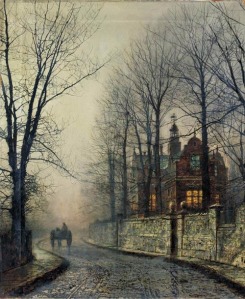 that was like one’s hand when one holds it up to a strong light, primrose yellow, a watery jade green, and a gentle orange. The dresses were made of muslin, and billowed in loops and swinging circles as their wearers’ little feet carried them about in what was neither a dance nor the everyday motion of ordinary people. It was as if these lovely, creatures were all parts of a brave and sensitive and melancholy being, and were at once confiding in each other about their griefs, which were their common grief, and giving each other reassurance.
that was like one’s hand when one holds it up to a strong light, primrose yellow, a watery jade green, and a gentle orange. The dresses were made of muslin, and billowed in loops and swinging circles as their wearers’ little feet carried them about in what was neither a dance nor the everyday motion of ordinary people. It was as if these lovely, creatures were all parts of a brave and sensitive and melancholy being, and were at once confiding in each other about their griefs, which were their common grief, and giving each other reassurance.
Some carried croquet mallets and went on to the lawn and started to play, while the others sat down on benches to watch them. But sooner or later the players would pause and forget to make the next stroke, move toward each other and stand in a group, resting their mallets on the ground, and presently forget them and let them fall, as the spectators rose from their seats to join them in their exchange of confidences. Though they appeared in the garden as often as three times a week, they always seemed to have as much to say to one another as if they met but once a year; and they were always grave as they talked. There was a wildness about them, it was impossible to tell what they would do next, one might suddenly break away from the others and waltz round the lawn in the almost visible arms of an invisible partner; but when they talked, they showed restraint, they did not weep, though what they said was so plainly sad, and they rarely laughed. What was true of one of them was true of all, for there seemed very little difference between them. All were golden-headed. The only one who could be told apart was the wearer of the lilac-grey dress. She was taller than the rest, and often stood aloof while they clustered together and swayed and spoke. Sometimes a woman in a black gown came down from the terrace and talked to this separate one.
The girls in the coloured dresses were the seven daughters of the Admiral who owned the house. My uncle saw him once, when he called on Alice Darrell to discuss with her arrangements for repairing the wall between their properties: a tall and handsome man with iron-grey hat, a probing, defensive gaze, and a mouth so sternly compressed that it was a straight line across his face. The call would never have been made had there not been business to discuss. The Admiral would have no social relations with his neighbours; nobody had ever been invited to his house. Nor, had such an invitation been sent, would Aunt Alice have accepted it, for she thought he treated his daughters abominably. She could not help smiling when she told her nephew their names, for they came straight off the Navy List: Andromeda, Cassandra, Clytie, Hera, Parthenope, Arethusa, and Persephone. But that was the only time she smiled when she spoke of them, for she thought they had been treated with actual cruelty, though not in the way that might have been supposed. They were not immured in this lonely house by a father who wanted to keep them to himself; their case was the very opposite. The Admiral’s daughters were, in effect, motherless. By Aunt Alice my Uncle Arthur was told that the Admiral’s wife was an invalid and had to live in a mild climate in the West of England, but from the servants he learned that she was mad. Without a wife to soften him, the Admiral dealt with his daughters summarily by sending each of them, as she passed her seventeenth birthday, to be guided through the London season by his only sister, a wealthy woman with a house in Berkeley Square, and by giving each to the first man of reasonably respectable character who made her an offer of marriage. He would permit no delay, though his daughters, who had inheritances from a wealthy
Darrell to discuss with her arrangements for repairing the wall between their properties: a tall and handsome man with iron-grey hat, a probing, defensive gaze, and a mouth so sternly compressed that it was a straight line across his face. The call would never have been made had there not been business to discuss. The Admiral would have no social relations with his neighbours; nobody had ever been invited to his house. Nor, had such an invitation been sent, would Aunt Alice have accepted it, for she thought he treated his daughters abominably. She could not help smiling when she told her nephew their names, for they came straight off the Navy List: Andromeda, Cassandra, Clytie, Hera, Parthenope, Arethusa, and Persephone. But that was the only time she smiled when she spoke of them, for she thought they had been treated with actual cruelty, though not in the way that might have been supposed. They were not immured in this lonely house by a father who wanted to keep them to himself; their case was the very opposite. The Admiral’s daughters were, in effect, motherless. By Aunt Alice my Uncle Arthur was told that the Admiral’s wife was an invalid and had to live in a mild climate in the West of England, but from the servants he learned that she was mad. Without a wife to soften him, the Admiral dealt with his daughters summarily by sending each of them, as she passed her seventeenth birthday, to be guided through the London season by his only sister, a wealthy woman with a house in Berkeley Square, and by giving each to the first man of reasonably respectable character who made her an offer of marriage. He would permit no delay, though his daughters, who had inheritances from a wealthy 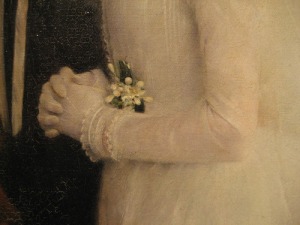 grandfather, as well as their beauty, would obviously have many suitors. These precipitate marriages were always against the brides’ inclinations, for they had, strangely enough, no desire but to go on living in their lonely home.
grandfather, as well as their beauty, would obviously have many suitors. These precipitate marriages were always against the brides’ inclinations, for they had, strangely enough, no desire but to go on living in their lonely home.
“They are,” Aunt Alice told her nephew, hesitating and looking troubled, “oddly young for their ages. I know they are not old, and that they have lived a great deal alone, since their mother cannot be with them. But they are really very young for what they are.” They had yielded, it was said, only to the most brutal pressure exercised by their father. It astonished my uncle that all this was spoken of as something that had happened in the past. They did not look like grown-up ladies as they wandered in the garden, yet all but two were wives, and those two were betrothed, and some of them were already mothers. Parthenope, the one with most character, the one who had charge of the house in her father’s absence, had married a North Country landowner who was reputed to be a millionaire. It was a pity that he was twice her age and had, by a dead wife, a son almost as old as she was, but a fortune is a great comfort; and none of her sisters was without some measure of that same kind of consolation. Nevertheless, their discontent could be measured by the frequency with which they returned to the house of their childhood.
The first time my uncle visited Currivel Lodge, the Admiral’s seven daughters were only a spectacle for his distant enjoyment. But one day during his second visit, a year later, his aunt asked him to deliver a note for Miss Parthenope at the house next door. Another section of the wall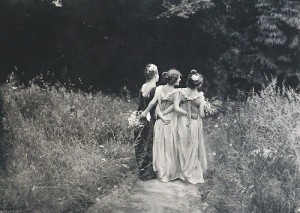 between the properties was in need of buttresses, and the builder had to have his orders. My uncle went up to his bedroom and smoothed his hair and washed his face, a thing he had never done before between morning and night of his own accord, and when he got to the Admiral’s house, he told the butler, falsely but without a tremor, that he had been told to give the note into Miss Parthenope’s own hands. It did not matter to him that the butler looked annoyed at hearing this: too much was at stake. He followed the butler’s offended back through several rooms full of fine furniture, which were very much like the rooms to which he was accustomed, but had a sleepy air, as if the windows were closed, though they were not. In one there were some dolls thrown down on the floor, though he had never heard that there were any children living in the house. In the last room, which opened on the stone terrace and its white and crimson roses, a woman in a black dress with a suggestion of a uniform about it was sitting at an embroidery frame. She stared at him as if
between the properties was in need of buttresses, and the builder had to have his orders. My uncle went up to his bedroom and smoothed his hair and washed his face, a thing he had never done before between morning and night of his own accord, and when he got to the Admiral’s house, he told the butler, falsely but without a tremor, that he had been told to give the note into Miss Parthenope’s own hands. It did not matter to him that the butler looked annoyed at hearing this: too much was at stake. He followed the butler’s offended back through several rooms full of fine furniture, which were very much like the rooms to which he was accustomed, but had a sleepy air, as if the windows were closed, though they were not. In one there were some dolls thrown down on the floor, though he had never heard that there were any children living in the house. In the last room, which opened on the stone terrace and its white and crimson roses, a woman in a black dress with a suggestion of a uniform about it was sitting at an embroidery frame. She stared at him as if 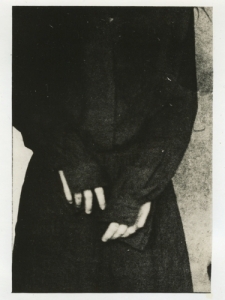 he presented a greater problem than schoolboys usually do, and he recognized her as the dark figure he had seen talking with the tallest of the daughters in the garden.
he presented a greater problem than schoolboys usually do, and he recognized her as the dark figure he had seen talking with the tallest of the daughters in the garden.
She took the letter from him, and he saw that the opportunity he had seized was slipping out of his grasp, so he pretended to be younger and simpler than he was, and put on the Irish brogue, which he never used at home except when he was talking to the servants or the people on the farms, but which he had found charmed the English. “May I not go out into the garden and see the young ladies?” he asked. “I have watched them from my window, and they look so pretty.”
It worked. The woman smiled and said. “You’re from Ireland, aren’t you?” and before he could answer she exclaimed, as if defying prohibitions of which she had long been weary, “What is the harm? Yes, go out and give the note to Miss Parthenope yourself. You will know her – she is wearing grey and is the tallest.” When he got out on the terrace, he saw that all seven of the Admiral’s daughters were on the lawn, and his heart was like a turning windmill as he went down the stone steps. Then one of the croquet players caught sight of him-the one who was wearing a red dress, just nearer flame colour than flesh. She dropped her mallet and cried, “Oh, look, a little boy! A little red-haired boy!” and danced toward him, sometimes pausing and twirling right round, so that her skirts billowed out round her. Other voices took up the cry, and, cooing like pigeons, the croquet players closed in on him in a circle of unbelievable beauty. It was their complexions that he remembered in later life as the marvel that made them, among all the women he was ever to see, the nonpareils. Light lay on their skin as it lies on the petals of flowers, but it promised that it would never fade, that it would last forever, like the pearl. Yet even while he remarked their loveliness and was awed by it, he was disconcerted. They came so close, and it seemed as if they might do more than look at him and speak to him. It was as if a flock of birds had come down on him, and were fluttering and pecking about him; and they asked so many questions, in voices that chirped indefatigably and were sharper than the human note. “Who are you?” “You are Mrs Darrell’s nephew?” “Her brother’s child or her sister’s?” “How old are you?” “What is your name?” “Why is your middle name Greatorex?” “Oh, what lovely hair he has – true Titian! And those round curls like coins!” “Have you sisters?” “Have they hair like yours?” Their little hands darted out and touched his hands, his cheeks, his shoulders, briefly but not pleasantly. His flesh rose in goose pimples, as it did when a moth’s wing brushed his face as he lay in bed in the dark. And while their feathery, restlessness poked and cheeped at him, they looked at him with eyes almost as fixed as if they were blind and could not see him at all. Their eyes were immense and very bright and shaded by lashes longer than he had ever seen; but they were so light a grey that they were as colourless as clear water running over a bed of pebbles. He was glad when the woman in the black dress called from the terrace. “Leave the boy alone!” He did not like anything about the Admiral’s daughters, now he saw them at close range. Even their dresses, which had looked beautiful from a distance, repelled him. If a lady had been sitting to a portrait painter in the character of a wood nymph, she might have worn such draperies, but it was foolish to wear them in a garden, when there was nobody to see them. “Leave the boy alone!” the woman in black called again. “He has come with a letter for Parthenope.”
brother’s child or her sister’s?” “How old are you?” “What is your name?” “Why is your middle name Greatorex?” “Oh, what lovely hair he has – true Titian! And those round curls like coins!” “Have you sisters?” “Have they hair like yours?” Their little hands darted out and touched his hands, his cheeks, his shoulders, briefly but not pleasantly. His flesh rose in goose pimples, as it did when a moth’s wing brushed his face as he lay in bed in the dark. And while their feathery, restlessness poked and cheeped at him, they looked at him with eyes almost as fixed as if they were blind and could not see him at all. Their eyes were immense and very bright and shaded by lashes longer than he had ever seen; but they were so light a grey that they were as colourless as clear water running over a bed of pebbles. He was glad when the woman in the black dress called from the terrace. “Leave the boy alone!” He did not like anything about the Admiral’s daughters, now he saw them at close range. Even their dresses, which had looked beautiful from a distance, repelled him. If a lady had been sitting to a portrait painter in the character of a wood nymph, she might have worn such draperies, but it was foolish to wear them in a garden, when there was nobody to see them. “Leave the boy alone!” the woman in black called again. “He has come with a letter for Parthenope.”
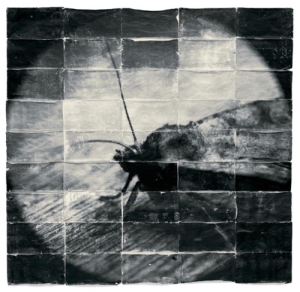 She had not been one of the circle. Now that the others fell back, my uncle saw her standing a little way off, biting her lip and knitting her brows, as if the scene disturbed her. There were other differences, beyond her height, that distinguished her from her sisters. While they were all that was most feminine, with tiny waists and hands, and feet, she might have been a handsome and athletic boy dressed in woman’s clothes for a school play. Only, of course, one knew quite well that she was not a boy. She stood erect, her arms hanging by her sides, smoothing back the muslin billows of her skirt, as if they were foolishness she would be glad to put behind her; and indeed, she would have looked better in Greek dress. Like her sisters, she had golden hair, but hers was a whiter gold. As my uncle and she went toward each other, she smiled, and he was glad to see that her eyes were a darker grey than her sisters’, and were quick and glancing. He told her who he was, speaking honestly, not putting on a brogue to win her, and she smiled and held out her hand. It took her a little time to read the letter, and she frowned over it and held her forefinger to her lips, and bade him tell his aunt that she would send over an answer later in the day, after she had consulted her gardeners, and then she asked him if he would care to come into the house and drink some raspberry vinegar. As she led him across the lawn to the terrace, walking with long strides, he saw that her sisters were clustered in a group, staring up at a gutter high on the house, where a rook had perched, as if the bird were a great marvel. “Should I say good-bye to the ladies?” he asked nervously, and Parthenope answered, “No, they have forgotten you already” However, one had not. The sister who wore the light-red dress ran after him, crying, “Come back soon, little boy, Nobody ever comes
She had not been one of the circle. Now that the others fell back, my uncle saw her standing a little way off, biting her lip and knitting her brows, as if the scene disturbed her. There were other differences, beyond her height, that distinguished her from her sisters. While they were all that was most feminine, with tiny waists and hands, and feet, she might have been a handsome and athletic boy dressed in woman’s clothes for a school play. Only, of course, one knew quite well that she was not a boy. She stood erect, her arms hanging by her sides, smoothing back the muslin billows of her skirt, as if they were foolishness she would be glad to put behind her; and indeed, she would have looked better in Greek dress. Like her sisters, she had golden hair, but hers was a whiter gold. As my uncle and she went toward each other, she smiled, and he was glad to see that her eyes were a darker grey than her sisters’, and were quick and glancing. He told her who he was, speaking honestly, not putting on a brogue to win her, and she smiled and held out her hand. It took her a little time to read the letter, and she frowned over it and held her forefinger to her lips, and bade him tell his aunt that she would send over an answer later in the day, after she had consulted her gardeners, and then she asked him if he would care to come into the house and drink some raspberry vinegar. As she led him across the lawn to the terrace, walking with long strides, he saw that her sisters were clustered in a group, staring up at a gutter high on the house, where a rook had perched, as if the bird were a great marvel. “Should I say good-bye to the ladies?” he asked nervously, and Parthenope answered, “No, they have forgotten you already” However, one had not. The sister who wore the light-red dress ran after him, crying, “Come back soon, little boy, Nobody ever comes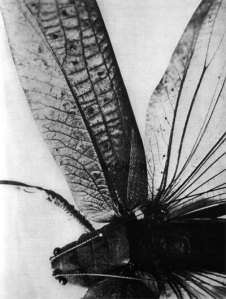 into this garden except to steal our strawberries.”
into this garden except to steal our strawberries.”
Parthenope took him through the silent house, pausing in the room where the dolls lay on the floor to lift them up and shut them in a drawer, and they came to a dining room, lined with pictures of great ships at war with stormy seas. There was no raspberry vinegar on the top of the sideboard–only decanters wearing labels marked with the names of adult drinks he was allowed only at Christmas and on his birthday, and then but one glass, and he always chose claret. So they opened the cupboard below, and sat down together on the carpet and peered into the darkness while he told her that he did not really want any but if it had gone astray he would be pleased to help her find it. But when the decanter turned up at the very back of the shelf (and they agreed that that was what always happened where one lost anything, and that there was no doubt that objects can move), they both had a glass, talking meanwhile of what they liked to eat and drink. Like him, she hated boiled mutton, and she, too, liked goose better than turkey. When he had finished and the talk had slowed down, he rose and put his glass on the sideboard, and offered her a hand to help her up from the floor, but she did not need it; and he gave a last look round the room, so that he would not forget it. He asked her, “Why is your chandelier tied up in a canvas bag? At home that only happens when the family is away.” She answered, “Our family is away,” speaking so grimly that he said, “I did not mean to ask a rude question.” She told him. “you have not asked a rude question. What I meant was that all but two of us have our own homes, and those two will be leaving here soon.” It would not have 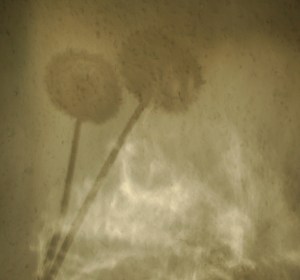 been right to say that she spoke sadly. But her tone was empty of all it had held when they had talked about how much better chicken tastes when you eat it with your fingers when you are out shooting. He remembered all the sad things he had heard his aunt say about her family, the sadder things he had heard from the servants. He said, “Why don’t you come back with me and have tea with my aunt?” She said, smiling, “She has not asked me.” And he said, “Never think of that. We are not proper English, you know; we are from Ireland, and friends come in any time…” But she thanked him, sighing, so that he knew she would really have liked to come, and said that she must go back to her sisters. As the butler held the front door open for my uncle, she gave him a friendly slap across the shoulders, as an older boy might have done.
been right to say that she spoke sadly. But her tone was empty of all it had held when they had talked about how much better chicken tastes when you eat it with your fingers when you are out shooting. He remembered all the sad things he had heard his aunt say about her family, the sadder things he had heard from the servants. He said, “Why don’t you come back with me and have tea with my aunt?” She said, smiling, “She has not asked me.” And he said, “Never think of that. We are not proper English, you know; we are from Ireland, and friends come in any time…” But she thanked him, sighing, so that he knew she would really have liked to come, and said that she must go back to her sisters. As the butler held the front door open for my uncle, she gave him a friendly slap across the shoulders, as an older boy might have done.
After that, my uncle never watched the Admiral’s daughters again. If a glance told him that they were in the garden, he turned his back on the window. He had not liked those staring eyes that were colourless as water, and it troubled him that though some of them had children, none had said, “I have a boy, too, but he is much younger than you,” for mothers always said that. He remembered Parthenope so well that he could summon her to his mind when he wished, and he could not bear to see her with these women who made him feel uneasy, because he was sure that he and she felt alike, and therefore she must be in a perpetual state of unease. so when, the very day before he was to go back to Ireland, he looked out of his bedroom window and saw her alone on the lawn, he threw up the sash and called to her; but she did not hear him. She was absorbed in playing a game by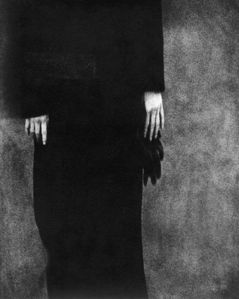 herself, a game that he knew well. She was throwing a ball high into the air, then letting her arms drop by her sides, and waiting to the last, the very last moment, before stretching out a hand to catch it. It was a strange thing for a grown-up lady to be doing, but it did not distress him like the play-ground gambolling and chattering of her sisters. They had been like children as grownups like to think of them, silly and meaningless and mischievous. But she was being a child as children really are, sobered by all they have to put up with and glad to forget it in play. There was currently some danger that his own father was going to get a post in some foreign place and that the whole family would have to leave County Kerry for years and years; and when he and his brothers and sisters thought of this, they would go and, each one apart, would play this very same game that Parthenope was playing.
herself, a game that he knew well. She was throwing a ball high into the air, then letting her arms drop by her sides, and waiting to the last, the very last moment, before stretching out a hand to catch it. It was a strange thing for a grown-up lady to be doing, but it did not distress him like the play-ground gambolling and chattering of her sisters. They had been like children as grownups like to think of them, silly and meaningless and mischievous. But she was being a child as children really are, sobered by all they have to put up with and glad to forget it in play. There was currently some danger that his own father was going to get a post in some foreign place and that the whole family would have to leave County Kerry for years and years; and when he and his brothers and sisters thought of this, they would go and, each one apart, would play this very same game that Parthenope was playing.
He did not want to raise his voice in a shout, in case he was overheard by his aunt or his mother. They would not understand that although Parthenope and he had met only once, they knew each other quite well. He got up from the window seat and went out of his room and down through the house and out into the garden. There was a ladder in the coach house, and he dragged it to the right part of the wall and propped it up and stopped it with stones, and climbed to the top and called “Miss Parthenope” When she saw him, she smiled and waved at him as if she really were glad to see him again.
“Where are your sisters” he asked cautiously.
“They have all gone away. I am going home tomorrow.”
“So am I.”
“Are you glad?”
“Papa will be there,” he said, “and my brothers and sisters, and Garrity the groom, and my pony.”
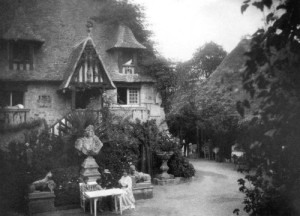 She asked him the names of his brothers and sisters, and how old they were, and where his home was; and he told her all these things and told her, too, that his father was always being sent all over the world, and that of late he and his brothers and sisters had heard talk that someday,, and it might be soon, he would be sent to some foreign place for so long that they would have to go with him, and they didn’t want this to happen; for though they loved him and wanted to be near him, they loved County Kerry, too. At that, she stopped smiling and nodded her head, as if to say she knew how he must feel. “But perhaps it won’t happen,” he said, “and then you must come and stay with us for the hunting.” He thought of her in a riding habit, and at that he noticed that she was wearing a dress such as his own mother might have worn – a dress of grey cloth, with a tight bodice and a stiffened skirt, ornamented with braid. He said, “How funny to see you dressed like other ladies. Don’t you usually wear that lilac-grey muslin dress?”
She asked him the names of his brothers and sisters, and how old they were, and where his home was; and he told her all these things and told her, too, that his father was always being sent all over the world, and that of late he and his brothers and sisters had heard talk that someday,, and it might be soon, he would be sent to some foreign place for so long that they would have to go with him, and they didn’t want this to happen; for though they loved him and wanted to be near him, they loved County Kerry, too. At that, she stopped smiling and nodded her head, as if to say she knew how he must feel. “But perhaps it won’t happen,” he said, “and then you must come and stay with us for the hunting.” He thought of her in a riding habit, and at that he noticed that she was wearing a dress such as his own mother might have worn – a dress of grey cloth, with a tight bodice and a stiffened skirt, ornamented with braid. He said, “How funny to see you dressed like other ladies. Don’t you usually wear that lilac-grey muslin dress?”
She shook her head. “No. My sisters and I only wear those muslin dresses when we are together here. My, sisters like them.”
“Don’t you?”” he said, for her tone had gone blank again.
“No,” she answered, “not at all.”
He was glad to hear it, but it seemed horribly unfair that she should have to wear clothes she did not like, just because her sisters did; nothing of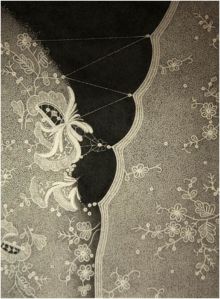 the sort happened in his own family. “Then don’t wear them” he said passionately. “You mustn’t wear them! Not if you don’t like them!”
the sort happened in his own family. “Then don’t wear them” he said passionately. “You mustn’t wear them! Not if you don’t like them!”
“You’re making your ladder wobble,” she said, laughing at him, “and if you fall down, I can’t climb over the wall and pick you up.” She started across the lawn toward the house.
“Garrity says that you’re lost if you let yourself be put upon,” he cried after her, his brogue coming back to him, but honestly, because he spoke to Garrity as Garrity spoke to him. He would have liked to have the power to make her do what she ought to do, and save her from all this foolishness.
“Good-bye, good-bye,” she called across the growing distance. “Be a good boy, and come back to see us next year.”
“You will be here for sure?” he asked eagerly.
“Oh, yes,” she promised. “We will always be back here for some time in the summer. My sisters would rather be here than anywhere in the world.”
“But do you like it yourself” he asked angrily.
It was no use. She had run up the steps to the terrace.
My uncle did not come back the next year, because his fears were realized and his father was appointed to a post in Canada. But from his aunt’s letters to his mother he learned that even if he had returned to Currivel Lodge, he would not have seen Parthenope, for the Admiral sold the house later that year, as soon as his two remaining daughters went 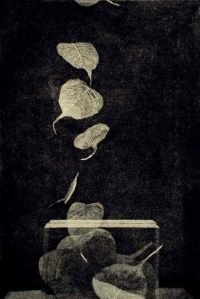 to the altar, which they did with even greater reluctance than their elder sisters. Alice Darrell’s maid happened to be at the window one winter day and saw the two of them walking up and down the lawn, dressed in those strange, bright muslin gowns and wearing no mantles, though the river mist was thick, while they wept and wrung their hands. Aunt Alice felt that even if the Admiral had felt obliged to bundle all his daughters into matrimony, he should at least not have sold the house, which was the one place where they could meet and have a little nursery happiness again.
to the altar, which they did with even greater reluctance than their elder sisters. Alice Darrell’s maid happened to be at the window one winter day and saw the two of them walking up and down the lawn, dressed in those strange, bright muslin gowns and wearing no mantles, though the river mist was thick, while they wept and wrung their hands. Aunt Alice felt that even if the Admiral had felt obliged to bundle all his daughters into matrimony, he should at least not have sold the house, which was the one place where they could meet and have a little nursery happiness again.
In the course of time, Uncle Arthur came back to Ireland, and went to Trinity College, Dublin, and passed into the English Civil Service, and was sent to London. The first time he went back to Currivel Lodge, he stood at his bedroom window and stared out at the croquet lawn of the house next door, and it looked very much like other croquet lawns. Under the trees two men and two women were sitting round a tea table, all of them presenting the kind of appearance, more common then than now, that suggests that nothing untoward happens to the human race. It occurred to him that perhaps his boyish imagination had made a story out of nothing, but Aunt Alice gave him back his version intact. The Admiral had really hectored his daughters into early and undesired marriages, with the most brutal disregard for their feelings, and the daughters had really been very strange girls, given to running about the garden in a sort of fancy dress and behaving like children – all except Parthenope, who was quite remarkable. She had made her mark in society since then. Well, so they all had, in a way. Their photographs were always in the papers, at one time, and no wonder, they were so very pretty. But that seemed over now, and, indeed, they must all be out of their twenties by now, even the youngest. Parthenope’s triumphs, however, had been more durable. It was said that Queen Victoria greatly approved of her, and she was often at Court. My uncle always thought of Parthenope when he was dressing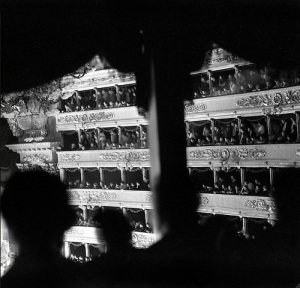 for any of the grander parties to which he was invited, and he soon found his way to the opera and ascertained which was her box, but she was never at the parties, and, unless she had changed out of all recognition, never in her box at Covent Garden, either. My uncle did not wish to approach her, for he was a poor young man far below her grandeur, and they belonged to different generations; at the least, she was twelve years older than he was. But he would have liked to see her again.
for any of the grander parties to which he was invited, and he soon found his way to the opera and ascertained which was her box, but she was never at the parties, and, unless she had changed out of all recognition, never in her box at Covent Garden, either. My uncle did not wish to approach her, for he was a poor young man far below her grandeur, and they belonged to different generations; at the least, she was twelve years older than he was. But he would have liked to see her again.
Soon, however, he received an intimation that that would not be possible. One morning at breakfast he unfolded his newspaper and folded it again almost immediately, having read a single paragraph, which told him that Parthenope had met a violent death. He had failed to meet her at parties and to see her in her opera box because she had been spending the winter abroad, taking care of two of her sisters who had both been the victims of prolonged illness. Originally, they had settled at Nice, but had found it too urban, and had moved to a hotel at Grasse, where they spent some weeks. Then a friend had found them a pleasant villa at Hyères, and the party had started off from Grasse in two carriages. Parthenope and her sisters and a lady’s maid had travelled in the first, and another maid and a courier had followed in the second. The second carriage had dropped far behind. Afterwards, the coachman remembered that he had been oddly delayed in leaving the inn where they had stopped for a midday meal; he had been told that a 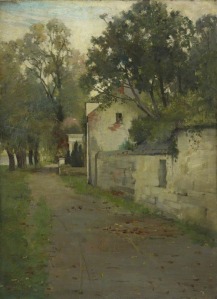 man was looking for him with a letter for his employers, and failing to find him had gone to a house some way down the village street. The coachman sought him but there was nobody there; and on his return to his horses he discovered that a harness strap was broken, and he had to mend it before they could resume their journey. After a sharp turn in the road, he had found himself driving into a felled tree trunk, and when the courier and the maid and the coachman got out, they could see no sign of the first carriage. It was found some hours later, abandoned on a cart track running through a wood to a river. There was no trace of any of its occupants. Later that same day the maid crawled up to a farmhouse door. Before she collapsed she was able to tell the story of an attack by masked men, who had, she thought, killed the three sisters outright because they refused to tell in which trunk their jewel cases were packed. She had escaped during the struggle, and while she was running away through the woods, she had heard terrible prolonged screaming from the riverbank. As the river was in flood, there was no hope of recovering the bodies.
man was looking for him with a letter for his employers, and failing to find him had gone to a house some way down the village street. The coachman sought him but there was nobody there; and on his return to his horses he discovered that a harness strap was broken, and he had to mend it before they could resume their journey. After a sharp turn in the road, he had found himself driving into a felled tree trunk, and when the courier and the maid and the coachman got out, they could see no sign of the first carriage. It was found some hours later, abandoned on a cart track running through a wood to a river. There was no trace of any of its occupants. Later that same day the maid crawled up to a farmhouse door. Before she collapsed she was able to tell the story of an attack by masked men, who had, she thought, killed the three sisters outright because they refused to tell in which trunk their jewel cases were packed. She had escaped during the struggle, and while she was running away through the woods, she had heard terrible prolonged screaming from the riverbank. As the river was in flood, there was no hope of recovering the bodies.
After my uncle had read all the accounts of the crime that appeared in the newspapers, and had listened to all he could hear from gossiping friends, there hung, framed on the wall of his mind, a romantic picture of a highway robbery, in the style of Senator Rosa, with coal-black shadows and highlights white on hands lifted in imploration, and he felt no emotion whatsoever. When he had opened The Times at breakfast, his heart had stopped. But now he felt as if he had been stopped before an outmoded and conventional picture in a private gallery by a host who valued it too highly.
A year or so later, Alice Darrell mentioned to him an odd story she had heard. It appeared that Parthenope had been carrying a great deal more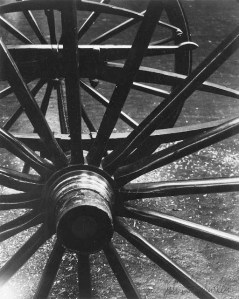 jewelry than would seem necessary for a woman travelling quietly with two invalid sisters. To be sure, she had not taken all tire jewelry she possessed, but she had taken enough for the value to be estimated at fifty thousand pounds; and of this not a penny could be recovered, for it was uninsured. Her husband had left the matter for her to handle, because she had sold some old jewelry and had bought some to replace it just about the time that the policy should have been renewed, but she had failed to write the necessary letter to her lawyers till the very night before the journey to Hyères, and it was found, unposted, at the hotel in Grasse.
jewelry than would seem necessary for a woman travelling quietly with two invalid sisters. To be sure, she had not taken all tire jewelry she possessed, but she had taken enough for the value to be estimated at fifty thousand pounds; and of this not a penny could be recovered, for it was uninsured. Her husband had left the matter for her to handle, because she had sold some old jewelry and had bought some to replace it just about the time that the policy should have been renewed, but she had failed to write the necessary letter to her lawyers till the very night before the journey to Hyères, and it was found, unposted, at the hotel in Grasse.
“Parthenope!” my uncle said. “Let an insurance policy lapse! Parthenope! I’ll not believe it.”
“That’s just what I said,” Alice Darrell exclaimed. ‘Any of the others, but not Parthenope. She had her hand on everything. Yet, of course, she may have changed. They are a queer family. There was the other one, you know – the one who disappeared. That was after the accident.
It seemed that another sister – Hera, Aunt Alice thought it was – had also suffered ill health, and had gone to France with a nurse, and one day her cloak and bonnet were found on the bank of a river. “I wish that things turned out better,” Aunt Alice remarked sadly. “They do sometimes, but not often enough.” This was the only criticism of life he had ever heard her utter, though she had had a sad life, constantly losing the people she loved, to tropical diseases or to wars against obscure tribes that lacked even the interest of enmity. What she uttered now made him realize that she had indeed thought Parthenope remarkable, and he said, smiling, ” Why, we are making ourselves quite miserable about her, though all we know for sure is that she let an insurance policy lapse.”
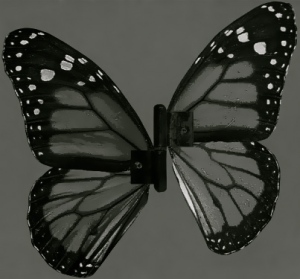 He did not hear of the Admiral’s daughters again until after a long space of time, during which he had many other things to think about: his career, which was alternatively advanced by his brilliance and retarded by his abstracted candour; a long affair with a married woman older than himself, some others that were briefer; and his marriage, which, like his career, and for much the same reason, was neither a success nor a failure. One day when he was reading the papers at his club, he heard two men speaking of a friend who was distressed about his mother, whose behaviour had been strange since she had been left a widow. She had rejected the dower house and gone off to the Continent to travel by herself and now refused to come back to see her family or to meet them abroad. The mother had an old Greek name, and so had a sister, who had got herself murdered for her jewels in the South of France. My uncle went on staring at his newspaper, but it was as if a door in his mind were swinging backward and forward on a broken hinge.
He did not hear of the Admiral’s daughters again until after a long space of time, during which he had many other things to think about: his career, which was alternatively advanced by his brilliance and retarded by his abstracted candour; a long affair with a married woman older than himself, some others that were briefer; and his marriage, which, like his career, and for much the same reason, was neither a success nor a failure. One day when he was reading the papers at his club, he heard two men speaking of a friend who was distressed about his mother, whose behaviour had been strange since she had been left a widow. She had rejected the dower house and gone off to the Continent to travel by herself and now refused to come back to see her family or to meet them abroad. The mother had an old Greek name, and so had a sister, who had got herself murdered for her jewels in the South of France. My uncle went on staring at his newspaper, but it was as if a door in his mind were swinging backward and forward on a broken hinge.
Many years later, when Aunt Alice was dead and my uncle was a middle-aged man, with children who were no longer children, he broke his journey home from a conference in Spain at a certain town in the southwest of France, for no other reason than that its name had always charmed him. But it proved to be a dull place, and as he sat down to breakfast at a cafe in the large and featureless station square, it occurred to him to ask the waiter if there were not some smaller and pleasanter place in the neighbourhood where he could spend the rest of the day and night. The waiter said that if Monsieur would take the horse-bus that started from the other side of the square in half an hour, it would take him to the village where he, the waiter, was born, and there he would find a good inn and a church that people came all the way from Paris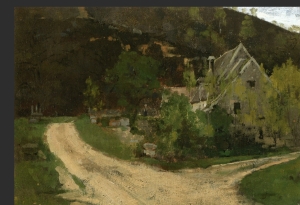 to see. My uncle took his advice; and because his night had been wakeful, he fell asleep almost as soon as the bus started. He woke suddenly to find that the journey had ended and he was in a village which was all that he had hoped it would be. A broad, deliberate river, winding among low wooded hills, spread its blessings at this point through a circular patch of plain, a couple of miles or so across, which was studded with farmhouses, each standing beside its deep green orchard. In the centre of this circle was a village that was no more than one long street, which looked very clean. The houses were built of stone that had been washed by the hill rains, and beside the road a brook flowed over a paved bed. There were bursts of red valerian growing from the cracks in the walls and in the yard-long bridges that crossed the brook. The street ended in a little square, where the church and the inn looked across cobblestones, shaded by pollarded limes, at the mairie and the post office. At the inn, my uncle took a room and slept for an hour or two in a bed smelling of the herbs with which the sheets had been washed. Then, as it was past
to see. My uncle took his advice; and because his night had been wakeful, he fell asleep almost as soon as the bus started. He woke suddenly to find that the journey had ended and he was in a village which was all that he had hoped it would be. A broad, deliberate river, winding among low wooded hills, spread its blessings at this point through a circular patch of plain, a couple of miles or so across, which was studded with farmhouses, each standing beside its deep green orchard. In the centre of this circle was a village that was no more than one long street, which looked very clean. The houses were built of stone that had been washed by the hill rains, and beside the road a brook flowed over a paved bed. There were bursts of red valerian growing from the cracks in the walls and in the yard-long bridges that crossed the brook. The street ended in a little square, where the church and the inn looked across cobblestones, shaded by pollarded limes, at the mairie and the post office. At the inn, my uncle took a room and slept for an hour or two in a bed smelling of the herbs with which the sheets had been washed. Then, as it was past  noon, he went down to lunch, and ate some potato soup, a trout, some wood strawberries, and a slice of cheese. Afterwards, he asked the landlord how soon the church would be open, and was told that he could open it himself when he chose. The priest and his housekeeper were away until vespers, and had left the church keys at the inn. When he went to the church, it was a long time before he unlocked the door, for there was a beautiful tympanum in the porch, representing the Last Judgement. It was clear-cut in more than one sense. There was no doubt who was saved and who was damned: there was a beatific smile on the faces of those walking in Paradise, which made it seem as if just there a shaft of sunlight had struck the dark stone. Also the edges of the carving, though the centuries had rubbed them down, showed a definition more positive than mere sharpness. Often my uncle played games when he was alone, and now he climbed on a wooden stool which was in the porch, and shut his eyes and felt the faces of the blessed, and pretended that he had been blind for a long time, and that the smiles of the blessed were striking into his darkness through his fingertips. When he went into the church, he found, behind an oaken door, the steps that led to the top of the tower. He climbed up through darkness that was transfixed every few steps by thin shafts of light, dancing with dust, coming through the eyelet windows, and he found that though the tower was not very high, it gave a fine view of an amphitheatre of hills, green on their lower slopes with chestnut groves, banded higher with fir woods and bare turf, and crowned with shining rock. He marked some likely paths on the nearest hills, and then dropped his eyes to the village below, and looked down into the oblong garden of a house that seemed larger than the rest. At the farther end was the usual, pedantically neat French vegetable garden; then there was a screen of espaliered fruit trees; then there was a lawn framed in trees so tall and strong that it could have been guessed from them alone that not far away there was a river. The lawn was
noon, he went down to lunch, and ate some potato soup, a trout, some wood strawberries, and a slice of cheese. Afterwards, he asked the landlord how soon the church would be open, and was told that he could open it himself when he chose. The priest and his housekeeper were away until vespers, and had left the church keys at the inn. When he went to the church, it was a long time before he unlocked the door, for there was a beautiful tympanum in the porch, representing the Last Judgement. It was clear-cut in more than one sense. There was no doubt who was saved and who was damned: there was a beatific smile on the faces of those walking in Paradise, which made it seem as if just there a shaft of sunlight had struck the dark stone. Also the edges of the carving, though the centuries had rubbed them down, showed a definition more positive than mere sharpness. Often my uncle played games when he was alone, and now he climbed on a wooden stool which was in the porch, and shut his eyes and felt the faces of the blessed, and pretended that he had been blind for a long time, and that the smiles of the blessed were striking into his darkness through his fingertips. When he went into the church, he found, behind an oaken door, the steps that led to the top of the tower. He climbed up through darkness that was transfixed every few steps by thin shafts of light, dancing with dust, coming through the eyelet windows, and he found that though the tower was not very high, it gave a fine view of an amphitheatre of hills, green on their lower slopes with chestnut groves, banded higher with fir woods and bare turf, and crowned with shining rock. He marked some likely paths on the nearest hills, and then dropped his eyes to the village below, and looked down into the oblong garden of a house that seemed larger than the rest. At the farther end was the usual, pedantically neat French vegetable garden; then there was a screen of espaliered fruit trees; then there was a lawn framed in trees so tall and strong that it could have been guessed from them alone that not far away there was a river. The lawn was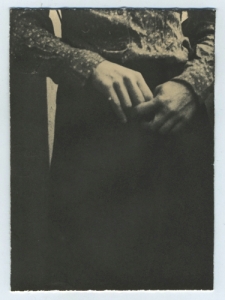 set with croquet hoops, and about them were wandering four figures in bright dresses—one hyacinth blue, one primrose yellow, one jade green, one clear light red. They all had croquet mallets in their hands, but they had turned from the game, and as my uncle watched them they drew together, resting their mallets on the ground. some distance away, a woman in black, taller thin the others, stood watching them.
set with croquet hoops, and about them were wandering four figures in bright dresses—one hyacinth blue, one primrose yellow, one jade green, one clear light red. They all had croquet mallets in their hands, but they had turned from the game, and as my uncle watched them they drew together, resting their mallets on the ground. some distance away, a woman in black, taller thin the others, stood watching them.
When one of the croquet players let her mallet fall on the grass, and used her free hands in a fluttering gesture, my uncle left the top of the tower and went down through the darkness and shafts of light and locked the church door behind him. In the corner of the square he found what might have been the chateau of the village – one of those square and solid dwellings, noble out of proportion to their size, which many provincial French architects achieved in the seventeenth century. My uncle went through an iron gateway into a paved garden and found that the broad door of the house was open. He walked into the vestibule and paused, looking up the curved staircase. The pictures were as old as the house, and two had been framed to fit the recessed panels in which they hung. The place must have been bought as it stood. On the threshold of the corridor beyond, he paused again, for it smelled of damp stone, as all the back parts of his father’s house in County Kerry did, at any time of the year but high summer. It struck him as a piece of good fortune for which he had never before been sufficiently grateful that he could go back to that house any time he pleased; he would be there again in a few weeks’ time. He passed the open door of a kitchen, where two women  were rattling dishes and pans and singing softly, and came to a closed door, which he stared at for a second before he turned the handle.
were rattling dishes and pans and singing softly, and came to a closed door, which he stared at for a second before he turned the handle.
He found himself in a salon that ran across the whole breadth of the house, with three French windows opening on a stone terrace overlooking the garden. As he crossed it to the steps that led down to the lawn, he came close to a bird cage on a pole, and the scarlet parrot inside broke into screams. All the women on the lawn turned and saw him, and the tall woman in black called, “Que voulez-vous, Monsieur?” She had put her hand to her heart and he was eager to reassure her, but could not think how, across that distance, to explain why he had come. So he continued to walk toward her, but could not reach her because the four others suddenly scampered toward him, crying “Go away! Go away!” Their arms flapped like bats’ wings, and their voices were cracked, but, under their white hair, their faces were unlined and their eyes were colourless as water, “Go away!” shrilled the one in light red. “We know you have come to steal our strawberries. why may we not keep our own strawberries?” But the figure in black had come forward with long strides, and told them to go on with their game, and asked again, “Que voulez-vous, Monsieur?” Her hair was grey now, and her mouth so sternly compressed that it was a straight line across her face. She reminded my uncle of a particular man – her father, the Admiral-but she was not like a man, she was still a handsome and athletic boy, though a frost had fallen on him; and still it was strange that she should look like a boy, since she was also not male at all. My uncle found that now he was face to face with her, it was just as difficult to explain to her why he had come. He said, “I came to this village by chance this morning, and after I had luncheon at the inn I went to the top of the church tower, and looked down on this garden, and recognized you all. I came to tell you that if there is anything I can do for you I will do it. I am a civil servant who has quite a respectable career,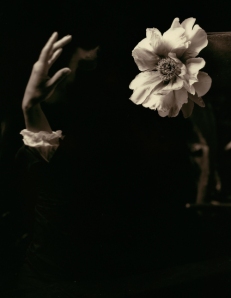 and so I can hope that I might be efficient enough to help you if you need it.”
and so I can hope that I might be efficient enough to help you if you need it.”
“That is very kind,” she said, and paused, and it was as if she were holding a shell to her ear and listening to the voice of a distant sea. “Very kind,” she repeated. “But who are you?”
“I am the nephew of your neighbour, Mrs Darrell,” said my uncle. “I brought you a letter from her, many years ago, when you were all in your garden.”
Her smile broke slowly. “I remember you,” she said. “You were a fatherly little boy. You gave me good advice from the top of a ladder. Why should you have found me here, I wonder? It can’t be that, after all, there is some meaning in the things that happen. You had better come into the house and drink some of the cherry brandy we make here. I will get the cook to come out and watch them. I never leave them alone now.”
While she went to the kitchen, my uncle sat in the salon and noted that, for all its fine furniture and all its space and light, there was a feeling that the place was dusty, the same feeling that he had noticed in the Admiral’s house long ago. It is the dust of another world, he thought with horror, and the housemaids of this world are helpless against it. It settles wherever these women live, and Parthenope must live with them.
When she came back, she was carrying a tray with a slender decanter and very tiny glasses. They sat sipping the cherry brandy in silence until she said, “I did nothing wrong.”
He looked at her in astonishment. Of course she had done nothing wrong. Wrong was what she did not do.
But she continued gravely. “When we all die, it will be found that the sum I got for the jewelry is intact. My stepson will not be a penny the worse off. Indeed, he is better off, for my husband has had my small inheritance long before it would have come to him if I had not done this.”
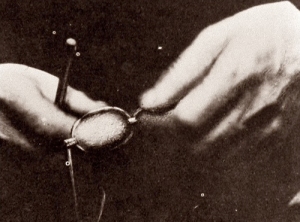 “I knew you would have done it honestly,” said my uncle. He hesitated. “This is very strange. You see, I knew things about you which I had no reason to know. I knew you had not been murdered.” Then my uncle had to think carefully. They were united by eternal bonds, but hardly knew each other, which was the reverse of what usually happened to men and women. But they might lapse into being strangers and nothing else if he showed disrespect to the faith by which she lived. He said only, “Also I knew that what you were doing in looking after your family was terrible.”
“I knew you would have done it honestly,” said my uncle. He hesitated. “This is very strange. You see, I knew things about you which I had no reason to know. I knew you had not been murdered.” Then my uncle had to think carefully. They were united by eternal bonds, but hardly knew each other, which was the reverse of what usually happened to men and women. But they might lapse into being strangers and nothing else if he showed disrespect to the faith by which she lived. He said only, “Also I knew that what you were doing in looking after your family was terrible.”
She answered, “Yes. How good it is to hear somebody say that it is terrible, and to be able to answer that it is. But I had to do it. I had to get my sisters away from their husbands. They were ashamed of them. They locked them up in the care of strangers. I saw their bruises.” My uncle caught his breath, “Oh,” she said, desperately just, “the people who looked after them did not mean to be cruel. But they were strangers; they did not know the way to handle my sisters. And their husbands were not bad men, either. And even if they had been, I could not say a word against them, for they were cheated; my father cheated them. They were never told the truth about my mother. About my mother and half her family.” She raised her little glass of cherry brandy to her lips and nodded, to intimate that that was all she had to say, but words rushed out and she brought her glass down to her lap. “I am not telling the truth. Their husbands cheated, too. No, I am wrong. They did not cheat. But they failed to keep their bond. Still, there is no use talking about that.”
“What bond did your sisters’ husbands not keep?” my uncle asked.
“They married my sisters because they were beautiful, and laughed easily, and could not understand figures. They might have considered that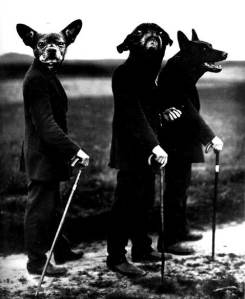 women who laugh easily might scream easily, and that if figures meant nothing to them, words might mean nothing, either, and that if figures and words meant nothing to them, thoughts and feelings might mean nothing, too. But these men had the impudence to feel a horror of my sisters.”
women who laugh easily might scream easily, and that if figures meant nothing to them, words might mean nothing, either, and that if figures and words meant nothing to them, thoughts and feelings might mean nothing, too. But these men had the impudence to feel a horror of my sisters.”
She rose, trembling, and told him that he must have a sweet biscuit with his cherry brandy, and that she would get him some; they were in a cupboard in the corner of the room. Over her shoulder, she cried, “I cannot imagine you marrying a woman who was horrible because she was horrible, and then turning against her because she was horrible.” She went on seeing some wafers out on a plate, and he stared at the back of her head, unable to imagine what was inside it, saying to himself, “She realizes that they are horrible; there is no mitigation of her state.”
When she sat down again, she said, “But it was my father’s fault.”
“What was your father’s fault?” he asked gently, when she did not go on.
“Why, he should not have made us marry; he should not have sold our house. My sisters were happy there, and all they asked was to be allowed to go on living there, like children.”
“Your father wanted his daughters to marry so that they would have someone to look after them when he was dead,” my uncle told her.
“I could have looked after them.”
“Come now,” said my uncle, “you are not being fair. You are the same sort of person as your father. And you know quite well that if you were a man you would regard all women as incapable. You see, men of the better kind want to protect the women they love, and there is so much 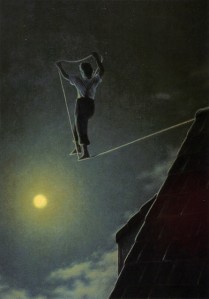 stupidity in the male nature and the circumstances of life are generally so confused that they end up thinking they must look after women because women cannot look after themselves. It is only very seldom that a man meets a woman so strong and wise that he cannot doubt her strength and wisdom, and realizes that his desire to protect her is really the same as his desire to gather her into his arms and partake of her glory.”
stupidity in the male nature and the circumstances of life are generally so confused that they end up thinking they must look after women because women cannot look after themselves. It is only very seldom that a man meets a woman so strong and wise that he cannot doubt her strength and wisdom, and realizes that his desire to protect her is really the same as his desire to gather her into his arms and partake of her glory.”
Moving slowly and precisely, he took out his card-case and was about to give her one of his cards when a thought struck him. She must have the name of his family’s house in County Kerry as well as his London address, and know that he went there at Christmas and at Easter, and in the summer, too. She would be able to find him whenever she wanted him, since such bootblack service was all he could render her.
She read the card and said in an astonished whisper, “Oh, how kind, how kind.” Then she rose and put it in a drawer in a secretaire, which she locked with a key she took from a bag swinging from the belt of her hateful black gown. “I have to lock up everything,” she said, wearily. “They mean no harm, but sometimes they get at papers and tear them up.”
“What I have written on that card is for an emergency,” said my uncle. “But what is there I can do now? I do not like the thought of you sitting here in exile, among things that mean nothing to you. Can I not send you out something English – a piece of furniture, a picture, some china or glass? If I were in your place, I would long for something that reminded me of the houses where I had spent my childhood.”
“If you were in my place, you would not,” she said. “You are very kind, but the thing that has happened to my family makes me not at all anxious to remember my childhood. We were all such pretty children. Everybody always spoke as if we were bound to be. And in those days nobody was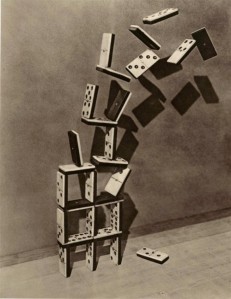 frightened of Mamma – they only laughed at her, because she was such a goose. Then one thing followed another, and it became quite certain about Mamma, and then it became quite certain about the others; and now I cannot bear to think of the good times that went before. It is as if someone had known and was mocking us. But you may believe that it is wonderful for me to know that there is someone I can call on at any time. You see, I had supports, which are being taken away from me. You really have no idea how I got my sisters out here?”
frightened of Mamma – they only laughed at her, because she was such a goose. Then one thing followed another, and it became quite certain about Mamma, and then it became quite certain about the others; and now I cannot bear to think of the good times that went before. It is as if someone had known and was mocking us. But you may believe that it is wonderful for me to know that there is someone I can call on at any time. You see, I had supports, which are being taken away from me. You really have no idea how I got my sisters out here?”
My uncle shook his head. “I only read what was in the newspapers and knew it was not true.”
“But you must have guessed I had helpers,” she said. “There was the highway robbery to be arranged. All that was done by somebody who was English but had many connections in France, a man who was very fond of Arethusa. Arethusa is the one who spoke to you in the garden; she always wears red. This man was not like her husband; when she got worse and worse, he felt no horror for her, only pity. He has always been behind me, but he was far older than we were, and he died three years ago; and since then his lawyer in Paris has been a good friend, but now he is old, too, and I must expect him to go soon, I have made all arrangements for what is to happen to my sisters after my death. They will go to a convent near here, where the nuns are really kind, and we are preparing them for it. One or other of the nuns comes here every day to see my sisters, so that they will never have to be frightened by strange faces; and I think that if my sisters go on getting worse at the same rate as at present, they will by then believe the nuns when they say that I have been obliged to go away and will come back presently. But till that time comes, I will be very glad to have someone I can ask for advice. I 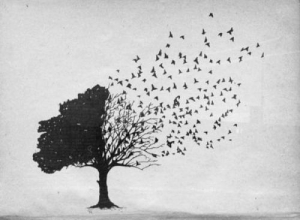 can see that you are to be trusted. You are like the man who loved Arethusa. My poor Arethusa! Sometimes I think,” she said absently, “that she might have been all right if it had been that man whom she had married. But no,” she cried, shaking herself awake, “none of us should have married, not even me.”
can see that you are to be trusted. You are like the man who loved Arethusa. My poor Arethusa! Sometimes I think,” she said absently, “that she might have been all right if it had been that man whom she had married. But no,” she cried, shaking herself awake, “none of us should have married, not even me.”
“Why should you not have married? asked my uncle. “That the others should not I understand. But why not you? There is nothing wrong with you.”
“Is there not?” she asked. “To leave my family and my home, to stage a sham highway robbery, and later to plot and lie, and lie and plot, in order to get my mad sisters to a garden I had once noted, in my travels, as something like the garden taken from them when they were young. There is an extravagance in the means my sanity took to rescue their madness that makes the one uncommonly like the other.”
“You must not think that,” my uncle told her. “Your strange life forced strangeness on your actions, but you are not strange. You were moved by love, you had seen their bruises.”
“Yes, I had seen their bruises,” she agreed. “But,” she added, hesitantly, “you are so kind that I must be honest with you. It was not only for the love of my sisters that I arranged this flight. It is also true that I could not bear my life. I was not wholly unselfish. You do not know what it is like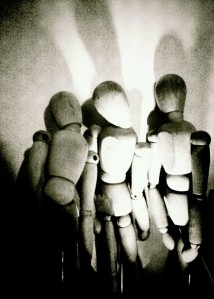 to be a character in a tragedy. Something has happened which can only be explained by supposing that God hates you with merciless hatred, and nobody will admit it. The people nearest you stand round you saying that you must ignore this extraordinary event, you must – what were the words I was always hearing? – ‘keep your sense of proportion,’ ‘not brood on things.’ They do not understand that they are asking you to deny your experiences, which is to pretend that you do not exist and never have existed. And as for the people who do not love you, they laugh. Our tragedy was so ridiculous that the laughter was quite loud. There were all sorts of really funny stories about the things my mother and sisters did before they were shut up. That is another terrible thing about being a character in a tragedy; at the same time you become a character in a farce. Do not deceive yourself,” she said, looking at him kindly and sadly. “I am not a classical heroine, I am not Iphigenia or Electra or Alcestis, I am the absurd Parthenope. There is no dignity in my life. For one thing, too much has happened to me. One calamity evokes sympathy; when two calamities call for it, some still comes, but less. Three calamities are felt to be too many, and when four are reported, or five, the thing is ludicrous. God has only to strike one again and again for one to become a clown. There is nothing about me which is not comical. Even my flight with my sisters has become a joke.” She sipped at her glass. “My sisters’ husbands and their families must by now have found out where we are. I do not think my husband ever did, or he would have come to see me. But there are many little indications that the others know, and keep their knowledge secret, rather than let loose so monstrous a scandal.”
to be a character in a tragedy. Something has happened which can only be explained by supposing that God hates you with merciless hatred, and nobody will admit it. The people nearest you stand round you saying that you must ignore this extraordinary event, you must – what were the words I was always hearing? – ‘keep your sense of proportion,’ ‘not brood on things.’ They do not understand that they are asking you to deny your experiences, which is to pretend that you do not exist and never have existed. And as for the people who do not love you, they laugh. Our tragedy was so ridiculous that the laughter was quite loud. There were all sorts of really funny stories about the things my mother and sisters did before they were shut up. That is another terrible thing about being a character in a tragedy; at the same time you become a character in a farce. Do not deceive yourself,” she said, looking at him kindly and sadly. “I am not a classical heroine, I am not Iphigenia or Electra or Alcestis, I am the absurd Parthenope. There is no dignity in my life. For one thing, too much has happened to me. One calamity evokes sympathy; when two calamities call for it, some still comes, but less. Three calamities are felt to be too many, and when four are reported, or five, the thing is ludicrous. God has only to strike one again and again for one to become a clown. There is nothing about me which is not comical. Even my flight with my sisters has become a joke.” She sipped at her glass. “My sisters’ husbands and their families must by now have found out where we are. I do not think my husband ever did, or he would have come to see me. But there are many little indications that the others know, and keep their knowledge secret, rather than let loose so monstrous a scandal.”
“You say your husband would have come to see you?” asked my uncle, wanting to make sure. “But that must mean he loved you.”
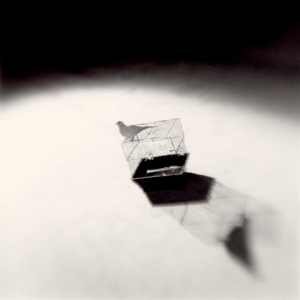 At last the tears stood in her eyes. She said, her voice breaking, “Oh, things might have gone very well with my husband and myself, if love had been possible for me. But of course it never was.”
At last the tears stood in her eyes. She said, her voice breaking, “Oh, things might have gone very well with my husband and myself, if love had been possible for me. But of course it never was.”
“How wrong you are,” said my uncle. “There could be nothing better for any man than to have you as his wife. If you did not know that, your husband should have made you understand it.”
“No, no,” she said. “The fault was not in my husband or myself. It was in love, which cannot do all that is claimed for it. Oh, I can see that it can work miracles, some miracles, but not all the miracles that are required before life can be tolerable, Listen: I love my sisters, but I dare not love them thoroughly. To love them as much as one can love would be to go to the edge of an abyss and lean over the edge, farther and farther, till one was bound to lose one’s balance and fall into the blackness of that other world where they live. That is why I never dared let my husband love me fully. I was so much afraid that I might be an abyss, and if he understood me, if we lived in each other, he would be drawn down into my darkness.”
“But there is no darkness in you,” said my uncle, “you are not an abyss, you are the solid rock.”
“Why do you think so well of me?” she wondered. “Of course, you are right to some extent – I am not the deep abyss I might be. But how could I be sure of that when I was young? Every night when I lay down in bed I examined my day for signs of folly. If I had lost my temper, if I had felt more joy than was reasonable, I was like one of a tuberculous family who has just heard herself cough. Only the years that had not then passed made me sure that I was unlike my sisters, and until I knew, I had to hold myself back. I could not let the fine man who was my husband be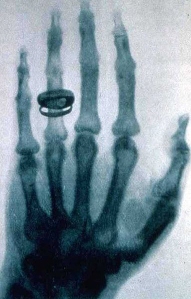 tempted into my father’s fault.”
tempted into my father’s fault.”
“What was your father’s fault?” asked my uncle, for the second time since he had entered that room.
Again her disapproval was absolute, her eyes were like steel. But this time she answered at once, without a moment’s hesitation: Why, he should not have loved my mother.”
“But you are talking like a child!” he exclaimed. “You cannot blame anyone for loving anyone.”
“Did you ever see him?” she asked, her eyes blank because they were filled with a distant sight. “Yes? You must have been only a boy, but surely, you say that he was remarkable. And he had a mind, he was a mathematician, he wrote a book on navigation that was thought brilliant; they asked him to lecture to the Royal Society. And one would have thought from his face that he was a giant of goodness and strength. How could such a man love such a woman as my mother? It was quite mad, the way he made us marry. How could he lean over the abyss of her mind and let himself be drawn down into that darkness?”
“Do not let your voice sink to a whisper like that,” my uncle begged her. “It – it –”
“It frightens you,” she supplied.
“But have you,” he pressed her, “no feeling for your mother?”
“Oh yes,” she said, her voice breaking. “I loved my mother very much. But when she went down into the darkness, I had to say good-bye to her or I could not have looked after my sisters.” It seemed as if she was going to weep, but she clung to her harshness and asked again, “How could my father love such a woman?”
My uncle got up and knelt in front of her chair and took her trembling hands in his. “There is no answer, so do not ask the question.”
 “I must ask it,” she said. “surely it is blasphemy to admit that one can ask questions to which there are no answers. I must ask why my father leaned over the abyss of my mother’s mind and threw himself into it, and dragged down victim after victim with him – not only dragging them down but manufacturing them for that sole purpose, calling them out of nothingness simply so that they could fall and fall. How could he do it? If there is not an answer – ”
“I must ask it,” she said. “surely it is blasphemy to admit that one can ask questions to which there are no answers. I must ask why my father leaned over the abyss of my mother’s mind and threw himself into it, and dragged down victim after victim with him – not only dragging them down but manufacturing them for that sole purpose, calling them out of nothingness simply so that they could fall and fall. How could he do it? If there is not an answer – ”
He put his hand over her lips. “He cannot have known that she was mad when he begot his children.”
Her passion had spent itself in her question. She faintly smiled as she said, “No, but I never liked the excuse that he and my sisters’ husbands made for themselves. They all said that at first they had simply thought their wives were rather silly. I could not have loved someone whom I thought rather silly. Could you?”
“It is not what I have done,” said my uncle. “May I have some more cherry brandy?”
“I am so glad you like it,” she said, suddenly happy. “But you have given me the wrong glass to fill. This is mine.”
“I knew that,” he told her. “I wanted to drink from your glass.”
“I would like to drink from yours,” she said, and for a little time they were silent. “Tell me,” she asked meekly, as if now she had put herself in his hands, “do you think it has been wrong for me to talk about what has happened to me? When I was at home they, always said it was bad to brood over it.”
“What nonsense,” said my uncle. “I am sure that it was one of the major misfortunes of Phèdre and Bérénice that they were unable to read Racine’s clear-headed discussions of their miseries.”
“You are right,” said Parthenope. “Oh, how kind Racine was to tragic people! He would not allow for a moment that they were comic. People at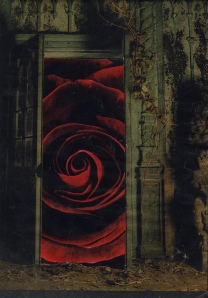 those courts must have giggled behind their hands at poor Bérénice, at poor Phèdre. But he ignored them. You are kind like Racine.”
those courts must have giggled behind their hands at poor Bérénice, at poor Phèdre. But he ignored them. You are kind like Racine.”
There was a tapping on the glass of the French window,, and her face went grey. “What has happened now? Oh, what has happened now?” she murmured to herself. It was the cook who had tapped, and she was looking grave. Parthenope went out and spoke with her for a minute, and then came back, and again the tears were standing in her eyes. “I thought I might ask you to stay all day with me,” she said. “I thought we might dine together. But my sisters cannot bear it that there is a stranger here. They’re are hiding in the raspberry canes, and you must have heard them screaming. Part of that noise comes from the parrot, but part from them. It sometimes takes hours to get them quiet. I cannot help it; you must go.”
He took both her hands and pressed them against his throat, and felt it swell as she muttered, “Good-bye.” But as he was going through the paved garden to the gateway he heard her call “Stop! Stop!” and she was just behind him, her skirts lifted over her ankles so that she could take her long strides. “The strangest thing,” she said, laughing. “I have not told you the name by which I am known here.” She spelled it out to him as he wrote it down in his diary, and turned back toward the house, exclaiming, “What a thing to forget” But then she swung back again, suddenly pale, and said, “But do not write to me. I am only giving you the name so that if I send you a message you will be able to answer it. But do not write to me.”
“Why not?” he asked indignantly. “Why not?”
“You must not be involved in my life,” she said. “There is a force outside the world that hates me and all my family. If you wrote to me too often it might hate you, too.”
 “I would risk that,” he said, but she cried, covering her eyes, “No, no, by being courageous you are threatening my last crumb of happiness. If you stay a stranger, I may be allowed to keep what I have of you. So do as I say.”
“I would risk that,” he said, but she cried, covering her eyes, “No, no, by being courageous you are threatening my last crumb of happiness. If you stay a stranger, I may be allowed to keep what I have of you. So do as I say.”
He made a resigned gesture, and they parted once more. But as she got to her door, he called to her to stop and hurried back. “I will not send you anything that will remind you of your home,” he said, “but may I not send you a present from time to time – some stupid little thing that will not mean much but might amuse you for a minute or two?”
She hesitated but in the end nodded. “A little present, a very little present,” she conceded. “And not too often.” She smiled like the saved in the sculpture in the church, and slowly closed the door on him.
But when he was out in the square and walking toward the inn, he heard her voice crying again, “Stop! Stop!” This time she came quite close to him and said, as if she were a child ashamed to admit to a fault, “There is another thing that I would like to ask of you. You said that I might write to you if I wanted anything, and I know that you meant business things – the sort of advice men give women. But I wonder if your kindness goes beyond that; You are so very kind. I know all about most dreadful things in life, but I know nothing about death. Usually I think I will not mind leaving this world, but just now and then, if I wake up in the night, particularly in winter, when it is very cold, I am afraid that I may be frightened when I die.”
“I fear that, too, sometimes,” he said.
“It seems a pity, too, to leave this world, in spite of the dreadful things that happen in it,” she went on. “There are things that nothing can spoil –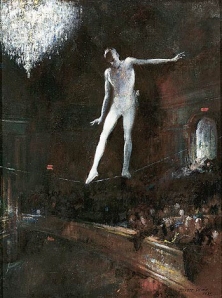 the spring and the summer and the autumn.”
the spring and the summer and the autumn.”
“And, indeed, the winter, too,” he said.
“Yes, the winter, too,” she said and looked up at the amphitheatre of hills round the village. “You cannot think how beautiful it is here when the snow has fallen. But, of course, death may be just what one has been waiting for; it may explain everything. But still, I may be frightened when it comes. So if I do not die suddenly, if I have warning of my death, would it be a great trouble for you to come and be with me for a little?”
“As I would like to be with you always, I would certainly want to be with you then,” he said. “And if I have notice of my death and you are free to travel, I will ask you to come to me.”
My uncle found that he did not want to go back to the inn just then, and he followed a road leading up to the foothills. There he climbed one of the paths he had remarked from the top of the church tower, and when he got to the bare rock, he sat down and looked at the village beneath him till the twilight fell. On his return to London, he painted a water-colour of the view of the valley as he recollected it, and pasted it in a book, which he kept by his bedside. From time to time, some object in the window of an antique shop or a jeweller’s would bring Parthenope to his mind, and he would send it to her, The one that pleased him as most fitting was a gold ring; in the form of two leaves, which was perhaps Saxon. She acknowledged these presents in brief letters; and it delighted him that often her solemn purpose of brevity broke down and she added an unnecessary sentence or two, telling him of something that had brightened her day – of a strayed fawn she had found in her garden, or a prodigious crop of cherries, 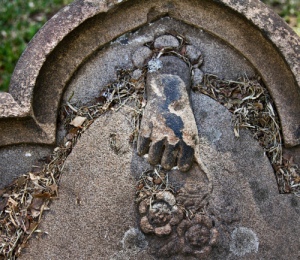 which had made her trees quite red. But after some years these letters stopped. When he took into account how old she was, and by how many years she had been the elder, he realized that probably she had died. He told himself that at least she had enjoyed the mercy of sudden death, and presently ceased to think of her. It was as if the memory of her were too large to fit inside his head; he felt actual physical pain when he tried to recollect her. This was the time when such things as the finest buttercup field near London and the tomb of Captain Vancouver seemed to be all that mattered to him. But from the day when he heard the girl at the inn called by the name of his Parthenope, he again found it easy to think of her; and he told me about her very often during the five years that passed before his death.
which had made her trees quite red. But after some years these letters stopped. When he took into account how old she was, and by how many years she had been the elder, he realized that probably she had died. He told himself that at least she had enjoyed the mercy of sudden death, and presently ceased to think of her. It was as if the memory of her were too large to fit inside his head; he felt actual physical pain when he tried to recollect her. This was the time when such things as the finest buttercup field near London and the tomb of Captain Vancouver seemed to be all that mattered to him. But from the day when he heard the girl at the inn called by the name of his Parthenope, he again found it easy to think of her; and he told me about her very often during the five years that passed before his death.
Blogs by their very nature tend to be personal, so it may not be amiss for me to admit that a few months ago I suffered a reverse which then slipped into an ever-worsening slump, and that since then my thinking has still not recovered its accustomed level of serviceability. But this story by the redoubtable Rebecca West has gone a long way towards ameliorating that condition, though not my present inclination to cavil and inveigh.
slipped into an ever-worsening slump, and that since then my thinking has still not recovered its accustomed level of serviceability. But this story by the redoubtable Rebecca West has gone a long way towards ameliorating that condition, though not my present inclination to cavil and inveigh.
It is the kind of old-fashioned, rambling short-story one is pleased and surprised to find being published in the New Yorker on the cusp of the ‘sixties. The story has nothing in it – not even a trace – of anything sordid, base or dull, and none of West’s caustic wit at the forefront, for there is no need here for her to be blatant about it. Her narrative is deceptively relaxed, but finely wrought – an antique gold watch chain attached to a fine old watch that keeps perfect time.
It comes as no surprise then, that reading it was to me as a gentle restorative, and in its way a redemption. I have to curb myself in order to restrain, as one would call it, an excess of enthusiasm, as one feels when encountering after a long while an old love, or the object of a deep affection. But why should I be so powerfully affected? The simple and truthful answer is that something in me was made to resonate.
As with all periodicals, even the highly traditional New Yorker has had to change somewhat with the times, and the changes are never more apparent to me than in the current quality and tone of its fiction. I do not know whether there have been still further changes, and perhaps for the better, in recent times, but since I have simply stopped reading the short stores, I have no way of knowing for certain if the cooked cardboard characters going about their uninteresting business have ceased to inhabit the fiction features. Perhaps it is not the New Yorker which is to blame, but the dearth of available material. Perhaps before too long I might persuade myself to summon the gumption to try reading another such offering, because I would like very much to be surprised.
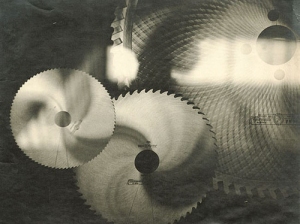 Part of the problem is perhaps that in this century, short-stories have become recognisably formulaic, consistently striking the same dull note. The challenge in many instances seems to be how much can be written about little or nothing that is of any significance, and how much talent and determination can be brought to documenting a catalogue of banalities. Not that it can’t be superbly done, and Elizabeth Bowen’s October 11, 1941 piece “Everything’s Frightfully Interesting” written almost entirely in dialogue, takes triviality and vapid conversation to the level of sublimity. But Bowen isn’t around anymore is she – nor is Katherine Mansfield or Sylvia Townsend Warner, or for a matter of fact Rebecca West. Its needs must when the devil rides for the New Yorker I suppose, when there are no longer any such writers to contribute.
Part of the problem is perhaps that in this century, short-stories have become recognisably formulaic, consistently striking the same dull note. The challenge in many instances seems to be how much can be written about little or nothing that is of any significance, and how much talent and determination can be brought to documenting a catalogue of banalities. Not that it can’t be superbly done, and Elizabeth Bowen’s October 11, 1941 piece “Everything’s Frightfully Interesting” written almost entirely in dialogue, takes triviality and vapid conversation to the level of sublimity. But Bowen isn’t around anymore is she – nor is Katherine Mansfield or Sylvia Townsend Warner, or for a matter of fact Rebecca West. Its needs must when the devil rides for the New Yorker I suppose, when there are no longer any such writers to contribute.
All writing is contrived: that is axiomatic, and the most of it more flagrantly than the small remainder. But some contrivances are so obviously, so egregiously and blatantly, fake as to resemble painted corpses, and the surrounding flowers and white satin only serve to accentuate that there is no life to be found here. I often wonder if this kind of writing is the precursor of further corruption. Certainly it is not something which belongs above-ground, as one instinctively feels in it the incipience of decay. The New Yorker published “Parthenope” on November 7 1959, but this story seems much older in tone, and one suspects that West might have written it several decades earlier. Then too, her characters were born in the Victorian era, and this is something we must bear in mind when we read her story. So I could, I suppose, conclude that some of my obvious delight derives from my bitter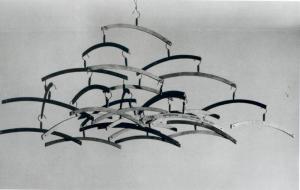 and forlorn inner literary atavist raising its shaggy head.
and forlorn inner literary atavist raising its shaggy head.
In “Parthenope” we have all the potent ingredients of a Victorian story finely adapted to a later time: first love, an implacably authoritarian father, madness, victimised women, self-sacrifice, an honourable protagonist, glimpses into the workings of families, foreign travel, inter-generational relationships, and a high moral tone modulated to a contemporary range of hearing. Still, I find West’s adumbration of the original Parthenope story curious. Our Parthenope, despite her act of heroic self-sacrifice, was a married woman and not a virgin (the Greek name ‘Parthenope’ means maiden-face), and did not commit suicide for love of an adventurer. And Uncle Arthur, despite his infidelities and foreign travel, was no Odysseus. True, he seems to have been beckoned by the siren’s song, but he never stopped his ears to keep from hearing it, and I think he was ready to love as fully and authentically as he could, had he been so permitted. The Sirens’ call is a metaphor for the implacable undertow that beauty and music have on our lives. These two forces often divert us from our charted course,  and we founder on them and lose our wonted bearings, but the paradox is that rather than killing us, they remove us from the deadness of what life would be without them. Perhaps it is a small but definite riff of redemption that West intended us to hear, for there is no connection in the story to Naples, where after her suicide Parthenope’s body was washed ashore between Chiatamone and Posilippo at a place originally called Parthenope by the Greeks and Neapolis by the Romans. West might have chosen to name her character after Parthenope in order to echo the themes of the divine punishment visited upon the Sirens, their uncanny natures, as well as that of unfulfilled love, all themes which possess the elements of tragedy, but don’t quite rise to its accepted requirements.
and we founder on them and lose our wonted bearings, but the paradox is that rather than killing us, they remove us from the deadness of what life would be without them. Perhaps it is a small but definite riff of redemption that West intended us to hear, for there is no connection in the story to Naples, where after her suicide Parthenope’s body was washed ashore between Chiatamone and Posilippo at a place originally called Parthenope by the Greeks and Neapolis by the Romans. West might have chosen to name her character after Parthenope in order to echo the themes of the divine punishment visited upon the Sirens, their uncanny natures, as well as that of unfulfilled love, all themes which possess the elements of tragedy, but don’t quite rise to its accepted requirements.
West’s Parthenope is an intriguing character. Her androgynous appearance, stressed and carefully described by West, suggests for me a subtly lesbian flavour, much like Marion (another resourceful and loyal sister) in Wilkie Collins’ The Woman in White. When she creates an almost saintly heroine who martyrs herself in order to take care of her weak-minded sisters (one of whom nevertheless knew about Titian, and loved light, red dresses and red hair), West departs from her unshakable conviction that self-sacrifice in women is to be deplored, or perhaps this story predated that conviction. But is it really sacrifice when it is the only choice one can make, and other choices lead only to self-betrayal? Is West implying there is no such thing as being altruistic? Or in Parthenope is she painting for us a different kind of ‘sacrifice’ which has nothing to do with weak submission, but a strong and decisive resolve to assume responsibility for the happiness and welfare of her sisters? Certainly Parthenope showed evidence of an exceptional courage when she set aside the fear that she herself might go mad in the future, and put into action a daring plan to rescue her sisters from the horror of the lives to which their mental disease and and unsympathetic husbands had destined them. Though Fate ran through it like an indelible blight, there seems to have been so much grace to be found in her uneasy life, and there is no doubt at all that in the last or any other judgement, Parthenope would be on the side of those redeemed. She herself is one of the things that ‘nothing can spoil’.
Is West implying there is no such thing as being altruistic? Or in Parthenope is she painting for us a different kind of ‘sacrifice’ which has nothing to do with weak submission, but a strong and decisive resolve to assume responsibility for the happiness and welfare of her sisters? Certainly Parthenope showed evidence of an exceptional courage when she set aside the fear that she herself might go mad in the future, and put into action a daring plan to rescue her sisters from the horror of the lives to which their mental disease and and unsympathetic husbands had destined them. Though Fate ran through it like an indelible blight, there seems to have been so much grace to be found in her uneasy life, and there is no doubt at all that in the last or any other judgement, Parthenope would be on the side of those redeemed. She herself is one of the things that ‘nothing can spoil’.
The ambivalent feelings reserved by his family for Uncle Arthur (‘derision and respect’) give us an important key to his character. He is brilliant but clueless, at least in regard to his relationships with his superiors in the Civil Service. He also seems to be ineffectual, unambitious, and with the exception of the niece in the story, his family ties seem rather loose. But that may be only as it appears. Uncle Arthur’s 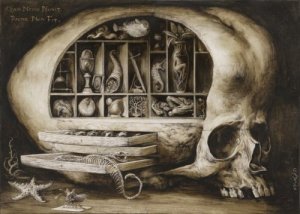 career setbacks have hidden implications. Anyone who has been employed for any significant length of time in a State bureaucracy will soon learn that these are highly corrupt places, where those in power have gained their position through political manouevering. Superiors, even if they are not intrinsically evil, are people who manage to set themselves up in positions of authority over others, and soon themselves become the tools of moral corruption. That Uncle Arthur seems to have been oblivious to this could mean one of two things: either he might not have cared enough about the consequences of offending the vanity of his chiefs, or something in his character carried him beyond the reach of the internal culture of his profession. He seems quite simply to have been a gentle scholar who nevertheless did not desist from using his scholarship to point out the vanity and ignorance of his eminently placed superiors. To describe him as unambitious is one of the greatest compliments it is possible for me to pay a civil servant, since in my personal experience at least, what is required in order to fulfill any professional ambitions in such an organisation or one like it, is close and vigilant engagement with a pack of highly detestable characters, and a willingness to engage with them on questionable terms. He had, I think, a great
career setbacks have hidden implications. Anyone who has been employed for any significant length of time in a State bureaucracy will soon learn that these are highly corrupt places, where those in power have gained their position through political manouevering. Superiors, even if they are not intrinsically evil, are people who manage to set themselves up in positions of authority over others, and soon themselves become the tools of moral corruption. That Uncle Arthur seems to have been oblivious to this could mean one of two things: either he might not have cared enough about the consequences of offending the vanity of his chiefs, or something in his character carried him beyond the reach of the internal culture of his profession. He seems quite simply to have been a gentle scholar who nevertheless did not desist from using his scholarship to point out the vanity and ignorance of his eminently placed superiors. To describe him as unambitious is one of the greatest compliments it is possible for me to pay a civil servant, since in my personal experience at least, what is required in order to fulfill any professional ambitions in such an organisation or one like it, is close and vigilant engagement with a pack of highly detestable characters, and a willingness to engage with them on questionable terms. He had, I think, a great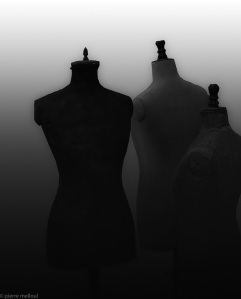 sense of justice and fairness, and an instinctive honesty. It seems not to have been learned, or forced, or acquired as a desirable trait, and not adopted to please God, but an instinct for virtue. He did not turn bitter for not having reaped the rewards he might have expected either in his career or his marriage, or for that matter, for not having managed a single successful relationship with a member of the opposite sex.
sense of justice and fairness, and an instinctive honesty. It seems not to have been learned, or forced, or acquired as a desirable trait, and not adopted to please God, but an instinct for virtue. He did not turn bitter for not having reaped the rewards he might have expected either in his career or his marriage, or for that matter, for not having managed a single successful relationship with a member of the opposite sex.
It is possible that marriage failed to give satisfaction because there was nothing there that needed saving, the impulse to save being deeply ingrained in his character. When he shuts his eyes and explores the faces of the blessed on the tympanum of the chapel, one feels it is an act which afforded him great satisfaction and pleasure. He would have wished to save Parthenope had he been given the opportunity. She had inspired in him an instant spark of fellow-feeling, and the first flaring of indignation he felt on her behalf had never been entirely extinguished. That was his immediate impulse when he saw her again, and when he found this was not possible, he resolved to offer her whatever ancillary support it was in his power to provide. He never seems to have been able to forget Parthenope, and one wonders if he sought her echo in the older married woman with whom he had an affaire. His infidelities notwithstanding, we find in him the unmistakable evidence of a lofty nature: a deferential love, deference being the complex and evolved behaviour it always is when at its finest and not merely a trait which cannot be distinguished from weakness or inferiority.
 Though his love was to find no conventional fulfillment, he found no cause to repine. Even at a difficult moment he was determined to find joy by resolving to be alive to life and natural beauty. He may have been deprived of youthful happiness, the lush beauty of Summer and Autumn, but he would claim from what remained whatever there was of love and happiness to be desired by his heart. This to me seems much more suggestive of strength than weakness. Arthur was precocious when young and child-like when old. Does this mean he was at his core a balanced well-integrated being? Or does it suggest he was always out of synch with his chronological stage in life? At an obvious level, I think it reveals that he possessed an ability to respond to circumstances with an unexpected amplitude of feeling .
Though his love was to find no conventional fulfillment, he found no cause to repine. Even at a difficult moment he was determined to find joy by resolving to be alive to life and natural beauty. He may have been deprived of youthful happiness, the lush beauty of Summer and Autumn, but he would claim from what remained whatever there was of love and happiness to be desired by his heart. This to me seems much more suggestive of strength than weakness. Arthur was precocious when young and child-like when old. Does this mean he was at his core a balanced well-integrated being? Or does it suggest he was always out of synch with his chronological stage in life? At an obvious level, I think it reveals that he possessed an ability to respond to circumstances with an unexpected amplitude of feeling .
This and other aspects of West’s story lead me to the conclusion that she wrote it when still quite young. For instance, every exchange between Uncle Arthur and Parthenope when he was a young boy and an old man, is marked by a tacit discernment and intuitive grasp of what each reveals to the other. This is very much the kind of understanding young people would like their elders to have, and would wish to be seen to have themselves. To be perceived and to be taken seriously by an adult is a gift which a young child in Victorian times could not often expect to receive, and it is no wonder then that Uncle Arthur found Parthenope unforgettable.
I suspect that Uncle Arthur was never really understood by anyone else. I suspect he might have seemed remote and removed with his family, to whom he was neither fish nor fowl, and his peers and colleagues were probably at a loss of what to make of him. He seems to have been adept at keeping his own counsel, and accustomed to keeping his ears open and his mouth shut, which is an equally useful skill in a State bureaucracy, or a club or breakfast table when one has just read a shocking bit of news about which it is important to not immediately comment. Nor does he seem to have flaunted his brilliance or erudition or worked to his advantage his astute understanding of the relationships between men and women, which is why, I suppose, he seems, despite such obvious disappointments, to have no axe to grind in that regard. Though by the time he meets Parthenope again, and being very much comme il faut, he knows exactly when to presume, and when not. He lets himself onto the premises unannounced, and allows himself the intimacy of drinking from Parthenope’s glass. He appears not to have outgrown his childish claim of “we are not proper English you know…” but retains intact the same delicacy about her feelings he possessed as a child. I think more than the recognition and appreciation of one lonely soul of another it is the knowledge that each was the only soul to whom the other could make itself known that forms the basis of their ‘unbreakable bond’. They have much in common, and though he is wrong
whom he was neither fish nor fowl, and his peers and colleagues were probably at a loss of what to make of him. He seems to have been adept at keeping his own counsel, and accustomed to keeping his ears open and his mouth shut, which is an equally useful skill in a State bureaucracy, or a club or breakfast table when one has just read a shocking bit of news about which it is important to not immediately comment. Nor does he seem to have flaunted his brilliance or erudition or worked to his advantage his astute understanding of the relationships between men and women, which is why, I suppose, he seems, despite such obvious disappointments, to have no axe to grind in that regard. Though by the time he meets Parthenope again, and being very much comme il faut, he knows exactly when to presume, and when not. He lets himself onto the premises unannounced, and allows himself the intimacy of drinking from Parthenope’s glass. He appears not to have outgrown his childish claim of “we are not proper English you know…” but retains intact the same delicacy about her feelings he possessed as a child. I think more than the recognition and appreciation of one lonely soul of another it is the knowledge that each was the only soul to whom the other could make itself known that forms the basis of their ‘unbreakable bond’. They have much in common, and though he is wrong  about a few things about her (such as when he mistakenly assumes that she suffers from a sense of exile and misses her old home in England and wishes to to be reminded of it), he recognises her strength and beauty, and in fact sees her much better than she appears to see herself. One hopes that before he left, and later by his continued expression of loyalty and love, he was able to convince her to recognise her strength and worth. I hope as well he might have persuaded her to find a more personal happiness for herself than she had permitted herself to have until then, though West rings down the curtain on Parthenope without permitting us the gratification of knowing that to any degree of certainty.
about a few things about her (such as when he mistakenly assumes that she suffers from a sense of exile and misses her old home in England and wishes to to be reminded of it), he recognises her strength and beauty, and in fact sees her much better than she appears to see herself. One hopes that before he left, and later by his continued expression of loyalty and love, he was able to convince her to recognise her strength and worth. I hope as well he might have persuaded her to find a more personal happiness for herself than she had permitted herself to have until then, though West rings down the curtain on Parthenope without permitting us the gratification of knowing that to any degree of certainty.
I suppose this might be a good place at which to stop my commentary, but many speculations still linger on in my mind. West’s classical allusion is a reflection of the punishment the Sirens incurred for challenging the Muses in a contest of singing, after which they were changed into creatures with the heads of birds and the bodies of women, which seems to imply, given a dual nature. In the case of Parthenope (the siren), the punishment was worse: her failed attempt to seduce Odysseus drove her to suicide. In giving Parthenope the face of a woman and the body of a boy, West suggest a similar duality. Along with that, West endows her with traits thought conventionally to be masculine, those of protectiveness, courage, and resourcefulness. Uncle Arthur however bears only the vaguest resemblance to Odysseus, and that only in the feeling we get that he is a wanderer always far from home. But there is a hidden implication here as well. The union of Odysseus and Penelope is described by Homer as comprising a perfect balance of male and female. So this is what appears to me to be at the root of Uncle Arthur’s ‘homesickness’, a fact that as a classical scholar, might not have escaped him entirely. He seems to have lacked the ability to respond competently and effectively to a situation that needed changing or improving, and simply tolerated the circumstances in which he found himself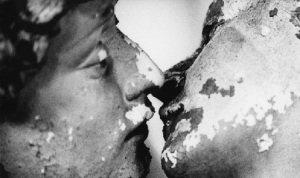 with what might be seen as as bland passivity, as Parthenope did not.
with what might be seen as as bland passivity, as Parthenope did not.
Parthenope’s ‘presumption’ may have been that she took it upon herself to play a masculine role, that of a guardian and protector of women. Complexities of character sometimes tend to be sorted out in pairs of opposites such as ‘feminine’ and ‘masculine’. The reason she was not fatally punished for this is that she, like Odysseus, ‘lashed herself to the mast’ – hers the mast of the eternal vigilance she exercised over her thoughts and actions, always subjecting herself to the closest scrutiny for any sign of incipient madness. Thinking herself always to be on the very brink of that abyss, she would never permit herself to be lost in it, and so discharged her duties sedulously and assiduously like the ‘wise virgin’ she was. Vigilance was the price for avoiding perdition.
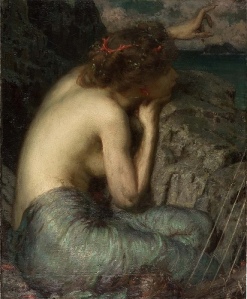 Parthenope’s understanding of tragedy was entirely Greek, whereas Uncle Arthur’s, with its understanding of redress and even salvation, tends towards the Christian, and in this he does indeed resemble Racine to whom West would, as Parthenope does, compare him. But another Racinian insight (a term I just made up) is that tragedy derives from the realisation that one can do nothing to alter the more intractable forms of tragic inheritance, as well as the irresistible compulsion to reflect upon it which usually accompanies an introspective nature. I think ‘Parthenope’ also invites us to ask the question of what rises to the level of tragedy and what does not, or not quite does, and the parts played by fate and choice in our lives. Parthenope chose to forego the happiness of a continued liaison with Uncle Arthur for fear of the tragic consequences she believed might ensue if she did not withhold herself, and he complies with her mandate with only a few small but significant exemptions. So both of them resolve their dilemmas by deciding to forgo happiness in order that in doing so tragedy might be averted.
Parthenope’s understanding of tragedy was entirely Greek, whereas Uncle Arthur’s, with its understanding of redress and even salvation, tends towards the Christian, and in this he does indeed resemble Racine to whom West would, as Parthenope does, compare him. But another Racinian insight (a term I just made up) is that tragedy derives from the realisation that one can do nothing to alter the more intractable forms of tragic inheritance, as well as the irresistible compulsion to reflect upon it which usually accompanies an introspective nature. I think ‘Parthenope’ also invites us to ask the question of what rises to the level of tragedy and what does not, or not quite does, and the parts played by fate and choice in our lives. Parthenope chose to forego the happiness of a continued liaison with Uncle Arthur for fear of the tragic consequences she believed might ensue if she did not withhold herself, and he complies with her mandate with only a few small but significant exemptions. So both of them resolve their dilemmas by deciding to forgo happiness in order that in doing so tragedy might be averted.
But my own stubborn mind reverts to a third option, that of propitiation. The gods are not always implacable, and their vanity predisposes them to be susceptible to appeasement. I don’t know why at this point I was reminded of the Palinode written by Stesichoros, by which means he induced Helen (who was worshipped by the Spartans as a goddess) to retract the penalty of blindness she had imposed on him for the impudent statements he had made about her. In his palinode Stesichoros revised history:
There is no truth in that story,
You didn’t ride in the well-rowed galleys,
You didn’t reach the walls of Troy.
Though there is no mitigation for ultimate tragedy, there is some for loss, and one of them is the retention of dignity. Uncle Arthur insisted on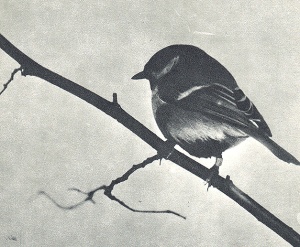 reframing Parthenope’s despairing characterisation of her tragedy as verging on farce to a great misfortune faced with gallantry and strength, and in doing so he restored to her a sense of her own dignity. Sometimes this perspective can only be gained by securing a view from a point above the plane of action. Uncle Arthur’s ascent to the top of the church tower permitted him to catch sight of Parthenope’s sisters playing croquet, and thus to find her again. In aiding a revisitation of her past, he helped her reexamine her father’s behaviour and her own conclusions about him in a different light, and in so doing perhaps he rewrote Parthenope’s history himself.
reframing Parthenope’s despairing characterisation of her tragedy as verging on farce to a great misfortune faced with gallantry and strength, and in doing so he restored to her a sense of her own dignity. Sometimes this perspective can only be gained by securing a view from a point above the plane of action. Uncle Arthur’s ascent to the top of the church tower permitted him to catch sight of Parthenope’s sisters playing croquet, and thus to find her again. In aiding a revisitation of her past, he helped her reexamine her father’s behaviour and her own conclusions about him in a different light, and in so doing perhaps he rewrote Parthenope’s history himself.
Another possibility is that Parthenope might well have served out her term of punishment. I wonder if this idea occurred to Uncle Arthur, though it was one he was constrained by Parthenope from pursuing. The foregoing of the pleasure of a day spent in each other’s company was one of the final offerings laid by Parthenope on the altar of the punitive gods, but they must have known that in the preceding years Uncle Arthur too had paid a collateral price, because both he and Parthenope had, each in his and her different way, become exiles. Although both of their exiles possessed ambiguous  elements (hers because she herself wished to escape her old life, and his because he was deterred from finding as fitting a place in life with her as might have been wished), the price paid by him might have been considered to augment hers. Euripides remarked that “All women are exiles”, but we sense in Uncle Arthur too a certain rootlessness, and what appear to be his frequent travels away from home may have been contrived in part to sharpen the pleasure of his return. He shows no indication of wanting to return to his his wife and family, though is it left unclear if he had either to return to. ‘Home’ to him meant a place and not people, but it may have been that this was an accommodation he was inclined to make, in the absence of the only person who mattered to him and with whom he might have been ‘at home’.
elements (hers because she herself wished to escape her old life, and his because he was deterred from finding as fitting a place in life with her as might have been wished), the price paid by him might have been considered to augment hers. Euripides remarked that “All women are exiles”, but we sense in Uncle Arthur too a certain rootlessness, and what appear to be his frequent travels away from home may have been contrived in part to sharpen the pleasure of his return. He shows no indication of wanting to return to his his wife and family, though is it left unclear if he had either to return to. ‘Home’ to him meant a place and not people, but it may have been that this was an accommodation he was inclined to make, in the absence of the only person who mattered to him and with whom he might have been ‘at home’.
It did not matter to Uncle Arthur that in sharing Parthenope’s life he risked incurring God’s displeasure, but it mattered very much to her. Was her dread merely a superstition, or was she right? That one is hated by God for this, that and the other reason, is an assertion many Christians use in order to bully the people they themselves hate, but what if they are on to something? We have only to cast a single look about us in order to see everywhere the evidence of a malevolent God, and if further proof were required, we are assured that it is in His image that man was created. But one thing is certain: there are certain kinds of human love which seem as if they could put God to shame, and this was demonstrated by Parthenope, who believed that God hated her. She sent Uncle Arthur away for his own safety. In caring for her sisters she demonstrated that the sternest, most consistently enduring morality is inspired and dictated by love, for all other kinds are bound sooner or later to fail; and in refusing to let Uncle Arthur run the risk of being cursed as she was, she revealed the hidden grace of blasphemy.
and this was demonstrated by Parthenope, who believed that God hated her. She sent Uncle Arthur away for his own safety. In caring for her sisters she demonstrated that the sternest, most consistently enduring morality is inspired and dictated by love, for all other kinds are bound sooner or later to fail; and in refusing to let Uncle Arthur run the risk of being cursed as she was, she revealed the hidden grace of blasphemy.
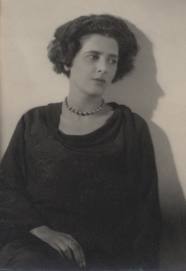 More on Rebecca West
More on Rebecca West
Rebecca West, Dame Commander of the British Empire and member of the French Légion d”Honneur was born Cicely Isabel Fairfield, on the winter solstice December 21 1892, and died on March 15 1983 the Ides of March.
Victoria Glendinning’s biography on Rebecca West: A Life
A fine chapter in Rosemary Dinnage’s book of some remarkable women Alone, Alone
Link to the post on Rebecca West Wikipedia
http://en.wikipedia.org/wiki/Rebecca_West
Read Full Post »
 I get into bed I think about the book. The people that are to be put between its covers dance before my eyes. I live in the city of Chicago and at night motor trucks go rumbling along the roadway outside my house. Not so very far away there is an elevated railroad and after twelve o’clock at night trains pass at pretty long intervals. Before it began I went to sleep during one of the quieter intervals but now that the idea of writing this book has got into me I lie awake and think.
I get into bed I think about the book. The people that are to be put between its covers dance before my eyes. I live in the city of Chicago and at night motor trucks go rumbling along the roadway outside my house. Not so very far away there is an elevated railroad and after twelve o’clock at night trains pass at pretty long intervals. Before it began I went to sleep during one of the quieter intervals but now that the idea of writing this book has got into me I lie awake and think.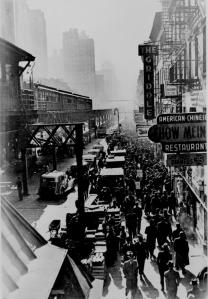
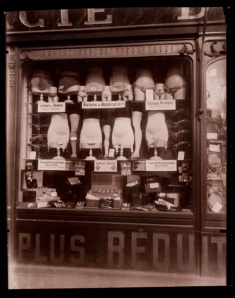 in New Orleans whose ancestors were French. “They will have retained enough of the flavor of Parisian life for me to get the feeling,” he said to himself. The man told me that the book turned out to be very successful and that the city of Paris read with delight a translation of his work as a study of French life, and I am only sorry I can’t find as simple a way out of my own job. The whole point with me is that my wish to write this book springs from a somewhat different notion. “If I can write everything out plainly, perhaps I will myself understand better what has happened,” I say to myself and smile. During these days I spend a good deal of time smiling at nothing. It bothers people. “What are you smiling about now?” they ask, and I am up against as hard a job trying to answer as I am trying to get underway with my book.
in New Orleans whose ancestors were French. “They will have retained enough of the flavor of Parisian life for me to get the feeling,” he said to himself. The man told me that the book turned out to be very successful and that the city of Paris read with delight a translation of his work as a study of French life, and I am only sorry I can’t find as simple a way out of my own job. The whole point with me is that my wish to write this book springs from a somewhat different notion. “If I can write everything out plainly, perhaps I will myself understand better what has happened,” I say to myself and smile. During these days I spend a good deal of time smiling at nothing. It bothers people. “What are you smiling about now?” they ask, and I am up against as hard a job trying to answer as I am trying to get underway with my book.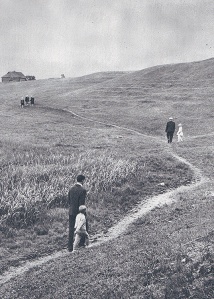 and his eyes have awakened a creepy feeling in me. I hurry away with a kind of dread of some unknown thing eating at my vital organs. Old men are great talkers. It may be that only kids know the real terror of loneliness.
and his eyes have awakened a creepy feeling in me. I hurry away with a kind of dread of some unknown thing eating at my vital organs. Old men are great talkers. It may be that only kids know the real terror of loneliness.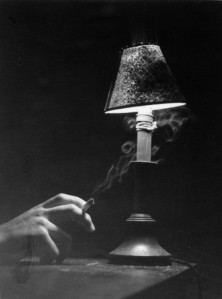 the tracks before all the people and before the race started, their legs quivered. Sometimes there was a horse got into such a state that when the race started he would do nothing. “Look at him. He can’t untrack himself,” we said.
the tracks before all the people and before the race started, their legs quivered. Sometimes there was a horse got into such a state that when the race started he would do nothing. “Look at him. He can’t untrack himself,” we said.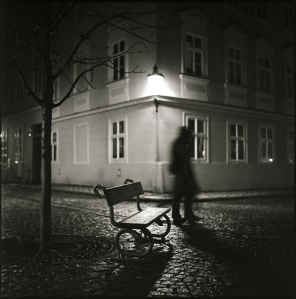 city street and humming a song. It catches the ear of another man who repeats it on the next day. A thin strand of song, like a tiny stream far up in some hill, begins to flow down into the wide plains. It waters the fields. It freshens the air above a hot stuffy city.”
city street and humming a song. It catches the ear of another man who repeats it on the next day. A thin strand of song, like a tiny stream far up in some hill, begins to flow down into the wide plains. It waters the fields. It freshens the air above a hot stuffy city.”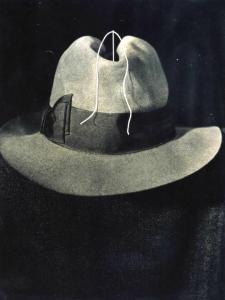 room in her apartment. I sat with my hand against my cheek, leaning a little forward. I had dressed myself carefully because I was going to see her, had put on my best suit of clothes. My hair was carefully combed and my glasses carefully balanced on my rather large nose. And there I was, in her apartment in a certain city, in a chair in a rather dark corner, with my hand against my cheek, looking as solemn as an old owl. We had been walking about and had come into the house and she had gone away leaving me sitting there, as I have said. The apartment was in a part of the city where many foreign people live and from my chair I could, by turning my head a little, look down into a street filled with Italians.
room in her apartment. I sat with my hand against my cheek, leaning a little forward. I had dressed myself carefully because I was going to see her, had put on my best suit of clothes. My hair was carefully combed and my glasses carefully balanced on my rather large nose. And there I was, in her apartment in a certain city, in a chair in a rather dark corner, with my hand against my cheek, looking as solemn as an old owl. We had been walking about and had come into the house and she had gone away leaving me sitting there, as I have said. The apartment was in a part of the city where many foreign people live and from my chair I could, by turning my head a little, look down into a street filled with Italians. Anyway I sat there looking and thinking such thoughts as came to me. The women who went along the street nearly all had dark colored shawls drawn up about their faces. The road-way was filled with children whose voices made a sharp tinkling sound.
Anyway I sat there looking and thinking such thoughts as came to me. The women who went along the street nearly all had dark colored shawls drawn up about their faces. The road-way was filled with children whose voices made a sharp tinkling sound.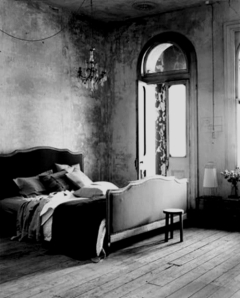 wolves are following the sled.A fellow I once knew told me that Americans are always up to such tricks because all of our old stories and dreams have come to us from over the sea and because we have no old stories and dreams of our own. Of that I can’t say. I am not putting myself forward as a thinker on the subject of the causes of the characteristics of the American people or any other monstrous or important matter of that kind. But anyway, there I was, sitting, as I have told you, in the Italian section of an American city and dreaming of myself being in Italy.
wolves are following the sled.A fellow I once knew told me that Americans are always up to such tricks because all of our old stories and dreams have come to us from over the sea and because we have no old stories and dreams of our own. Of that I can’t say. I am not putting myself forward as a thinker on the subject of the causes of the characteristics of the American people or any other monstrous or important matter of that kind. But anyway, there I was, sitting, as I have told you, in the Italian section of an American city and dreaming of myself being in Italy. there to lecture on life in Italian cities before a club that met at the Presbyterian church and to which my mother belonged, or perhaps later I read some novel the name of which I can’t remember. And so my princess had come down to me along a path out of a green wooded hill where her castle was located. She had walked under blossoming trees in the uncertain evening light and some blossoms had fallen on her black hair. The perfume of Italian nights was in her hair. That notion came into my head. That’s what I mean.
there to lecture on life in Italian cities before a club that met at the Presbyterian church and to which my mother belonged, or perhaps later I read some novel the name of which I can’t remember. And so my princess had come down to me along a path out of a green wooded hill where her castle was located. She had walked under blossoming trees in the uncertain evening light and some blossoms had fallen on her black hair. The perfume of Italian nights was in her hair. That notion came into my head. That’s what I mean. land,” I told myself, but when I had written many pages I tore them up too.
land,” I told myself, but when I had written many pages I tore them up too. A task one hopes to complete and yet defers because it cannot be begun is perfectly expressed by the the word the Romans thought they heard in the cry of the raven – “cras, cras,” meaning “tomorrow, tomorrow” – and which symbolises hope as well as procrastination. This seems to aptly echo the predicament adumbrated by Sherwood Anderson in this essay “Certain Things Last”, which he wrote sometime in the twenties, and which was found among his papers and published only in 1992.
A task one hopes to complete and yet defers because it cannot be begun is perfectly expressed by the the word the Romans thought they heard in the cry of the raven – “cras, cras,” meaning “tomorrow, tomorrow” – and which symbolises hope as well as procrastination. This seems to aptly echo the predicament adumbrated by Sherwood Anderson in this essay “Certain Things Last”, which he wrote sometime in the twenties, and which was found among his papers and published only in 1992.
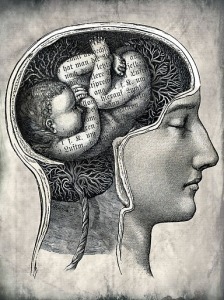 The task set for himself here by Anderson, that of trying to grasp at the flickering pattern cast by scattered thoughts and then to collect them for an arrangement to set on the page, is the perennial bane and delight of the writer. I don’t know if this is a task which may be better accomplished by a woman writer; certainly women like Virginia Woolf excelled at it, but Anderson shows us how a virtue may be made of stumbling. He conveys the slipperiness of the the whole process so vividly that even to someone who doesn’t think much about writing, the feeling of helplessness and unease comes wholly through. The hopeless feeling of being unable to ferry a thought from the having to the expressing of it is particularly acute when the ability to do it remains lost somewhere that is not amenable to recall. It is like floating in dark water and trying to remember how to move one’s arms and legs. I think this is in part because the language of recall is not strictly speaking ‘language’ but a kind of code conveyed in images.
The task set for himself here by Anderson, that of trying to grasp at the flickering pattern cast by scattered thoughts and then to collect them for an arrangement to set on the page, is the perennial bane and delight of the writer. I don’t know if this is a task which may be better accomplished by a woman writer; certainly women like Virginia Woolf excelled at it, but Anderson shows us how a virtue may be made of stumbling. He conveys the slipperiness of the the whole process so vividly that even to someone who doesn’t think much about writing, the feeling of helplessness and unease comes wholly through. The hopeless feeling of being unable to ferry a thought from the having to the expressing of it is particularly acute when the ability to do it remains lost somewhere that is not amenable to recall. It is like floating in dark water and trying to remember how to move one’s arms and legs. I think this is in part because the language of recall is not strictly speaking ‘language’ but a kind of code conveyed in images. even as he anxiously attempts to impose order and structure on his wayward thoughts in order to secure an outcome. He in turn surrenders and attempts to control in order to impose a shape or a structure or even an account of something written. Indeed one cannot be certain if this piece of writing was guided to its intended conclusion, or if it simply petered out at an impasse or a cul de sac with nowhere else to go and no way to turn back. “What is the point?” we wonder. Is it only to show that the writing of a book is a difficult enterprise, and that someone who sets him- or herself to the task must contend with endless distractions, diversions and detours on the way to getting the job done? Or is it to reveal the unruly nature of the process, how the very thoughts that must make up the content turn out to be perturbations, which as they move away from their point of origin, take one further and further away from the goal? Writers must learn to negotiate these obstacles, for they can never quite be overcome.
even as he anxiously attempts to impose order and structure on his wayward thoughts in order to secure an outcome. He in turn surrenders and attempts to control in order to impose a shape or a structure or even an account of something written. Indeed one cannot be certain if this piece of writing was guided to its intended conclusion, or if it simply petered out at an impasse or a cul de sac with nowhere else to go and no way to turn back. “What is the point?” we wonder. Is it only to show that the writing of a book is a difficult enterprise, and that someone who sets him- or herself to the task must contend with endless distractions, diversions and detours on the way to getting the job done? Or is it to reveal the unruly nature of the process, how the very thoughts that must make up the content turn out to be perturbations, which as they move away from their point of origin, take one further and further away from the goal? Writers must learn to negotiate these obstacles, for they can never quite be overcome.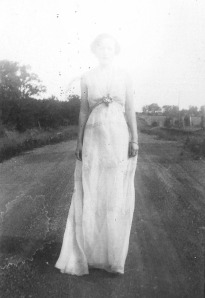 even as some agent of the thinking self stands by to take notes. And it seems that Anderson possessed a good note-taker, since it was he who wrote “She had on a dress of some clinging stuff and her slender figure made a very lovely line across the light” and “she was like a young tree you might see on a hill in a windstorm perhaps…..”
even as some agent of the thinking self stands by to take notes. And it seems that Anderson possessed a good note-taker, since it was he who wrote “She had on a dress of some clinging stuff and her slender figure made a very lovely line across the light” and “she was like a young tree you might see on a hill in a windstorm perhaps…..” 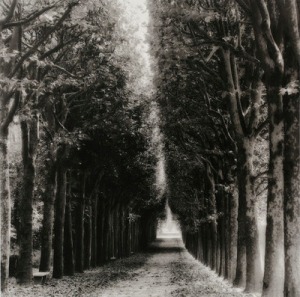 hair and Italian nights, which are shadowy counterparts of each other, must gain admittance as well. If in the next moments one ‘goes to his window to look out at the night,’ one might see, instead of the spark-sprinkled darkness of a sleeping city, “the moon and stars, and half-decayed trees in an old land.’
hair and Italian nights, which are shadowy counterparts of each other, must gain admittance as well. If in the next moments one ‘goes to his window to look out at the night,’ one might see, instead of the spark-sprinkled darkness of a sleeping city, “the moon and stars, and half-decayed trees in an old land.’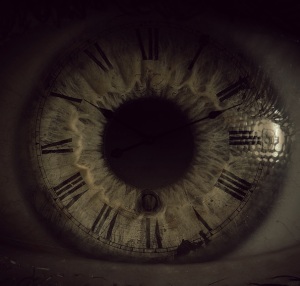 seem at times quite hopeless, and recollecting them seems like gathering leaves blown by the wind. Time too is not durable. It warps and bends in the attempt to draw it through the lens of memory. Are these what Anderson refers to as ‘the adventures of that certain moment?’ Are they fit to be the chosen subject of a piece of writing? Or should they be consigned to some vague designation of questionable value, to occupy the limbo between something which used to be either sustaining or memorable but is no longer, but is now discarded and stale as an old torn photograph or a half-eaten meal left neglected to grow cold on the kitchen table? Are these some things that last? Are they?
seem at times quite hopeless, and recollecting them seems like gathering leaves blown by the wind. Time too is not durable. It warps and bends in the attempt to draw it through the lens of memory. Are these what Anderson refers to as ‘the adventures of that certain moment?’ Are they fit to be the chosen subject of a piece of writing? Or should they be consigned to some vague designation of questionable value, to occupy the limbo between something which used to be either sustaining or memorable but is no longer, but is now discarded and stale as an old torn photograph or a half-eaten meal left neglected to grow cold on the kitchen table? Are these some things that last? Are they?